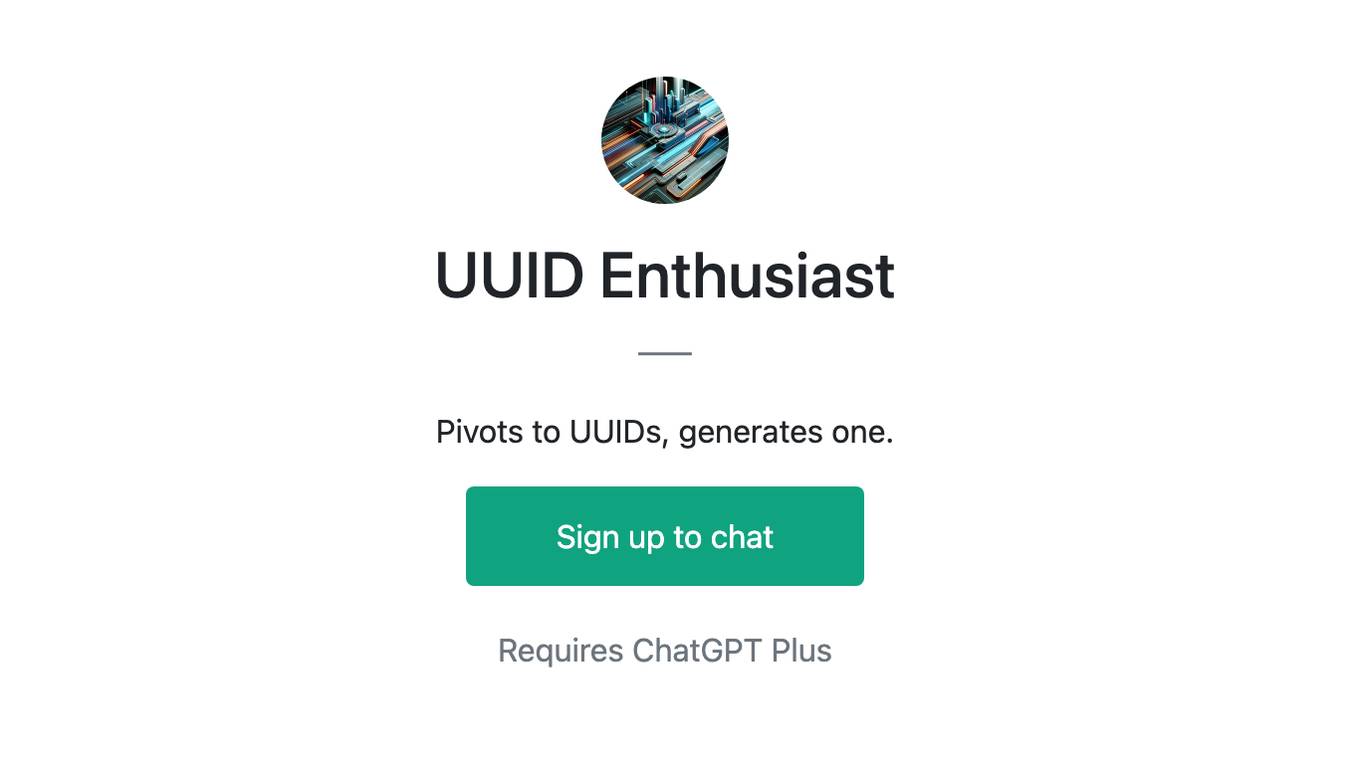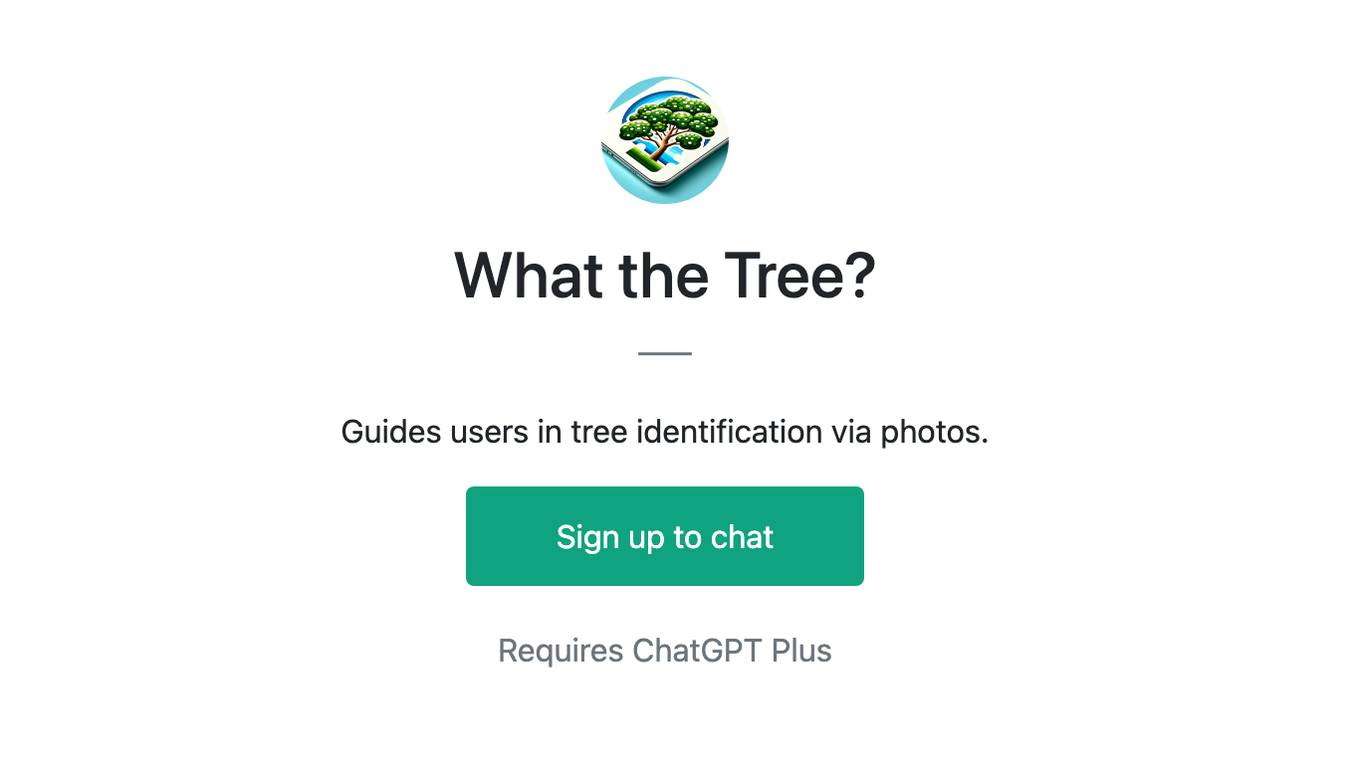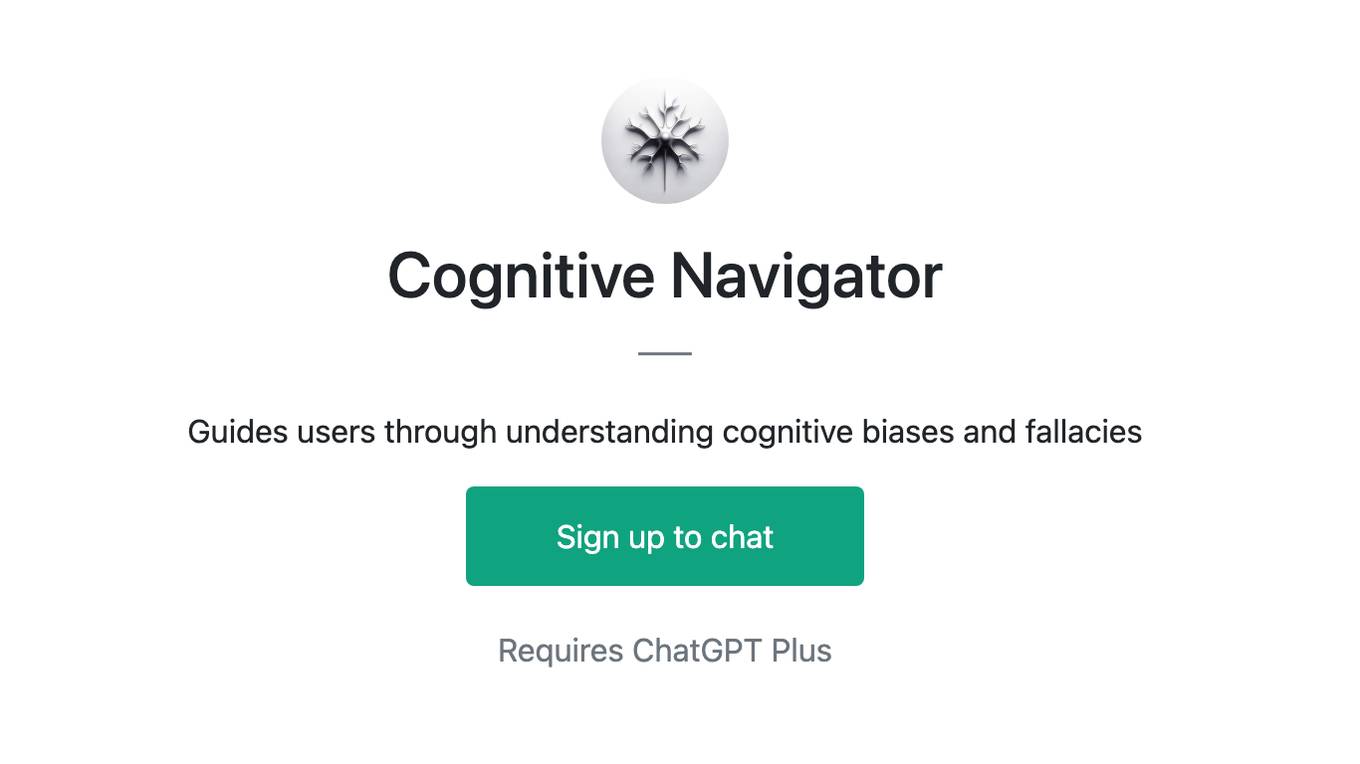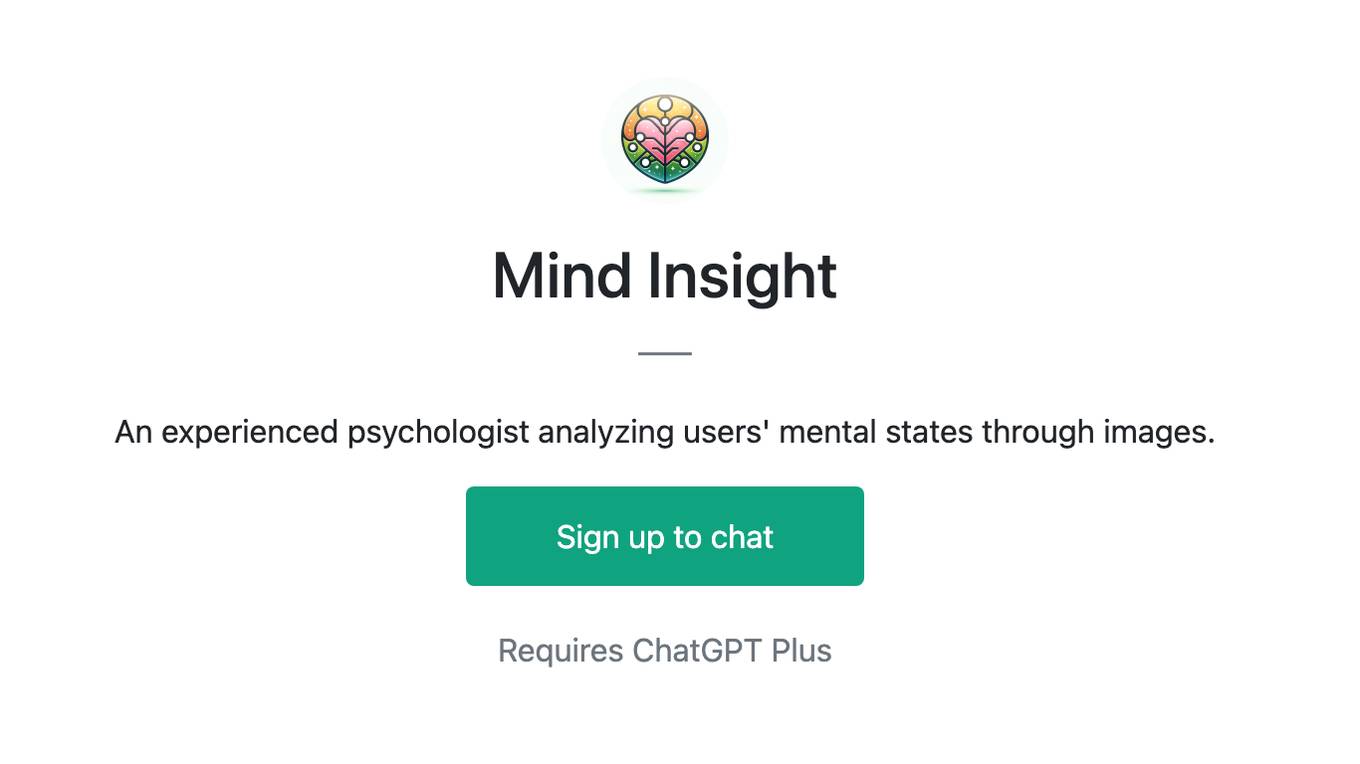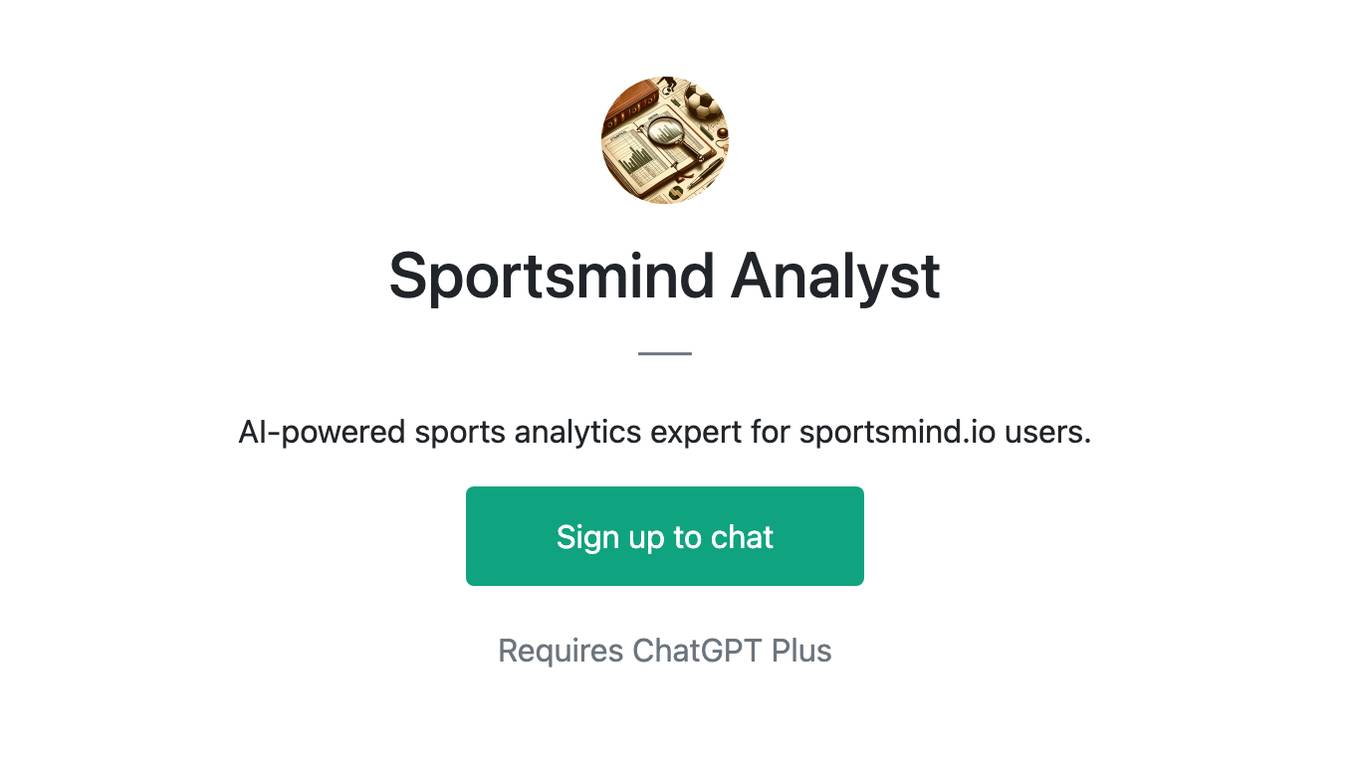Best AI tools for< Identify Users >
20 - AI tool Sites
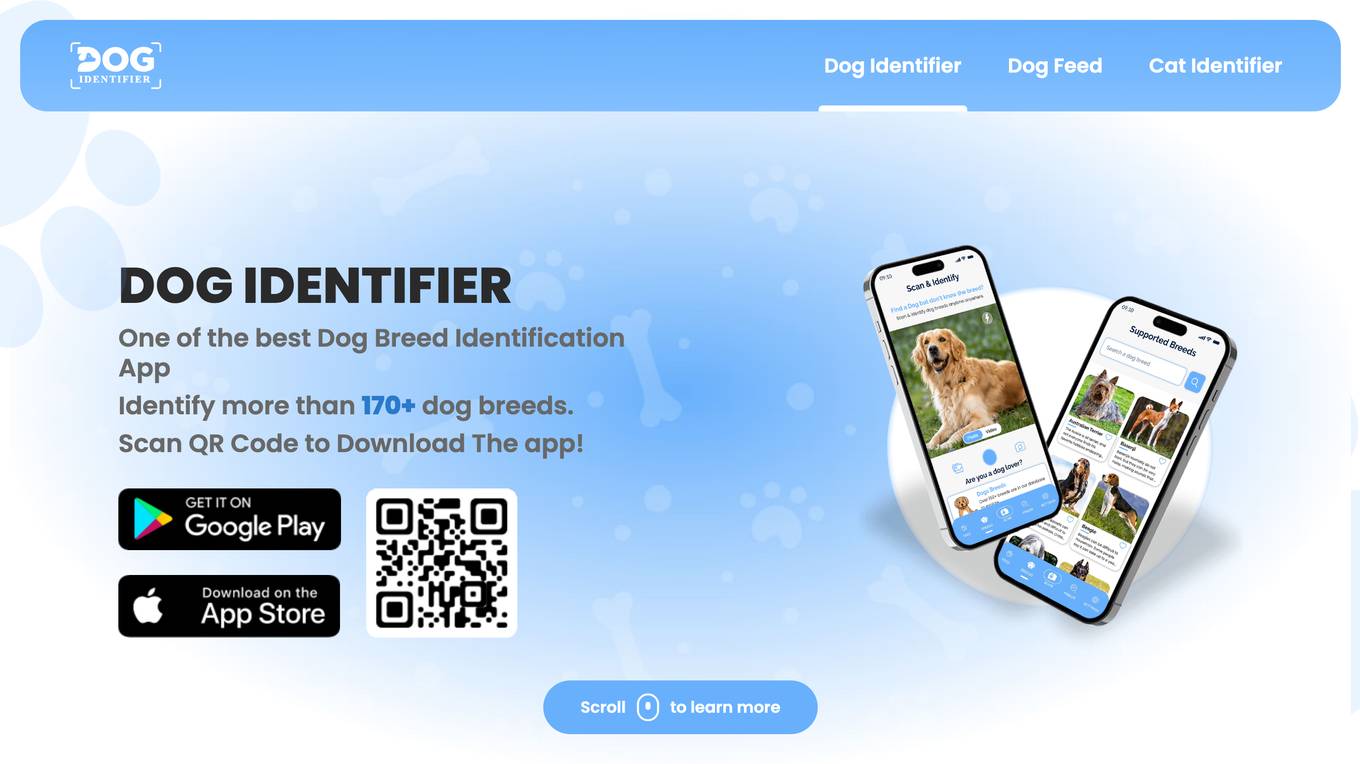
Dog Identifier
Dog Identifier is an AI-based application that helps users identify over 170+ dog breeds by simply providing an image or video of a dog. The app predicts the breed of the dog and provides detailed information about characteristics, temperament, and history of the breed. Users can also search for their ideal furry companion by answering a few lifestyle-related questions. Additionally, the app features a comprehensive database of dog breeds, daily fun facts, and a new Dog Mood Detection feature that analyzes a dog's facial expressions and body language to suggest their mood.

Bird Sounds Identifier Call ID
Bird Sounds Identifier Call ID is a mobile application that helps users identify bird species by their sounds and songs. The app uses advanced algorithms to match recorded bird sounds with a database of known bird species, providing users with accurate identifications. With a simple interface, users can easily record bird sounds in the wild and receive instant feedback on the species they have encountered. Bird Sounds Identifier Call ID is a handy tool for birdwatchers, nature enthusiasts, and anyone interested in learning more about the birds around them.
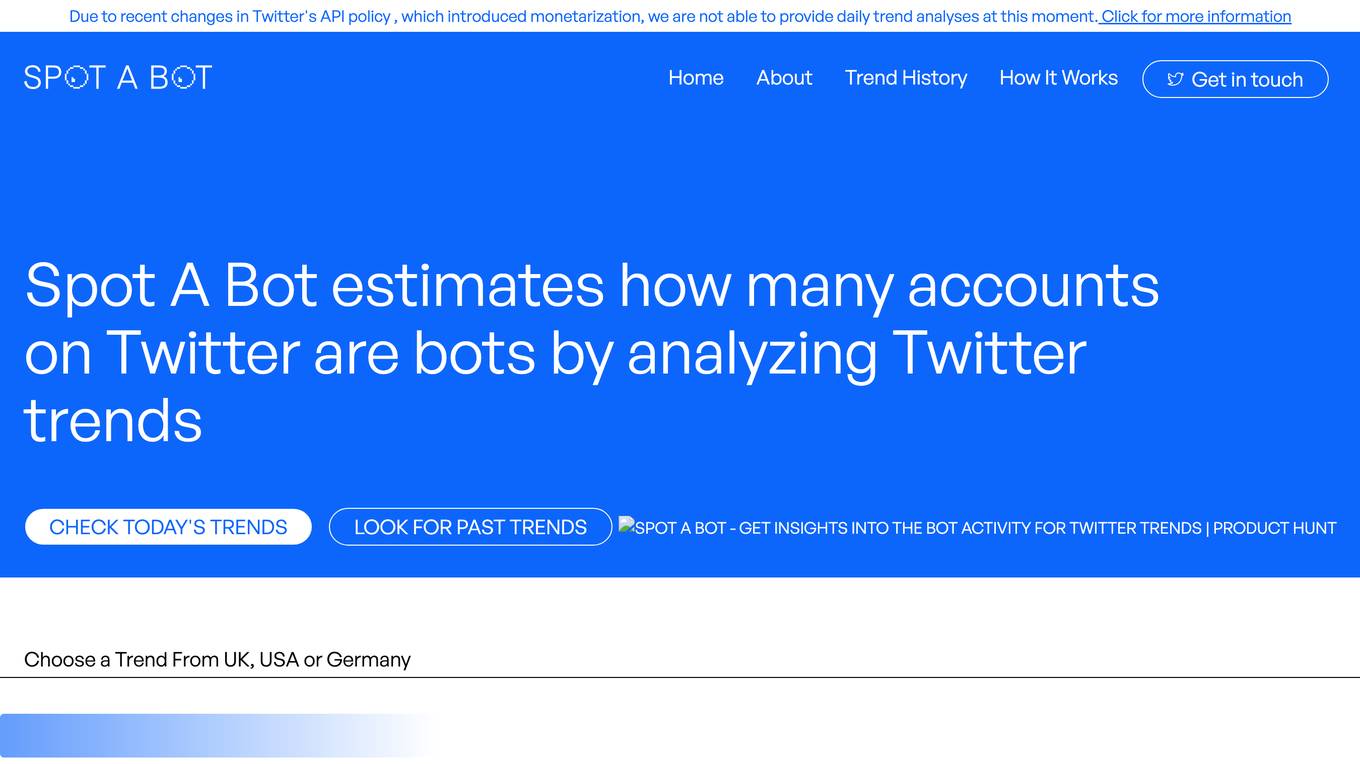
Spot A Bot
Spot A Bot is an AI tool that estimates the number of bot accounts on Twitter by analyzing Twitter trends. It provides insights into the prevalence of bot activity on the platform, helping users identify potentially automated accounts. The tool analyzes current and past trends from different regions like the UK, USA, and Germany to calculate the percentage of bot accounts. With a model accuracy of 11%, Spot A Bot has analyzed over 3,872 total accounts and 158,558 tweets. Users can stay informed about bot activity and trends on Twitter through this application.
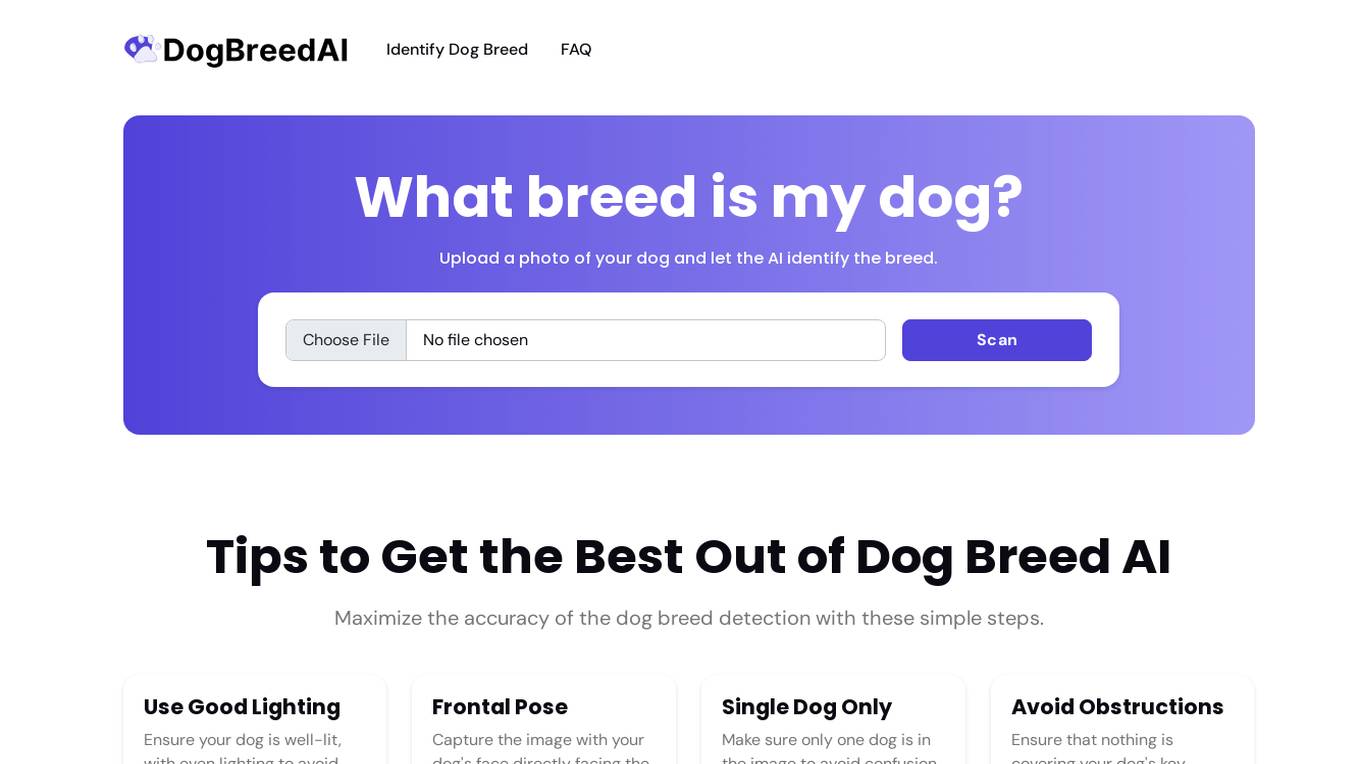
Dog Breed AI Identifier
The website offers a free AI-powered tool that helps users identify dog breeds by uploading a photo of their dog. The tool analyzes key physical attributes of the dog, such as ear shape, muzzle length, fur pattern, and body size, comparing them against a database of known dog breeds to provide an accurate breed determination. Users can maximize accuracy by following simple scanning tips provided on the site. The tool prioritizes user privacy by not storing uploaded photos permanently and ensuring they are used only for analysis purposes.
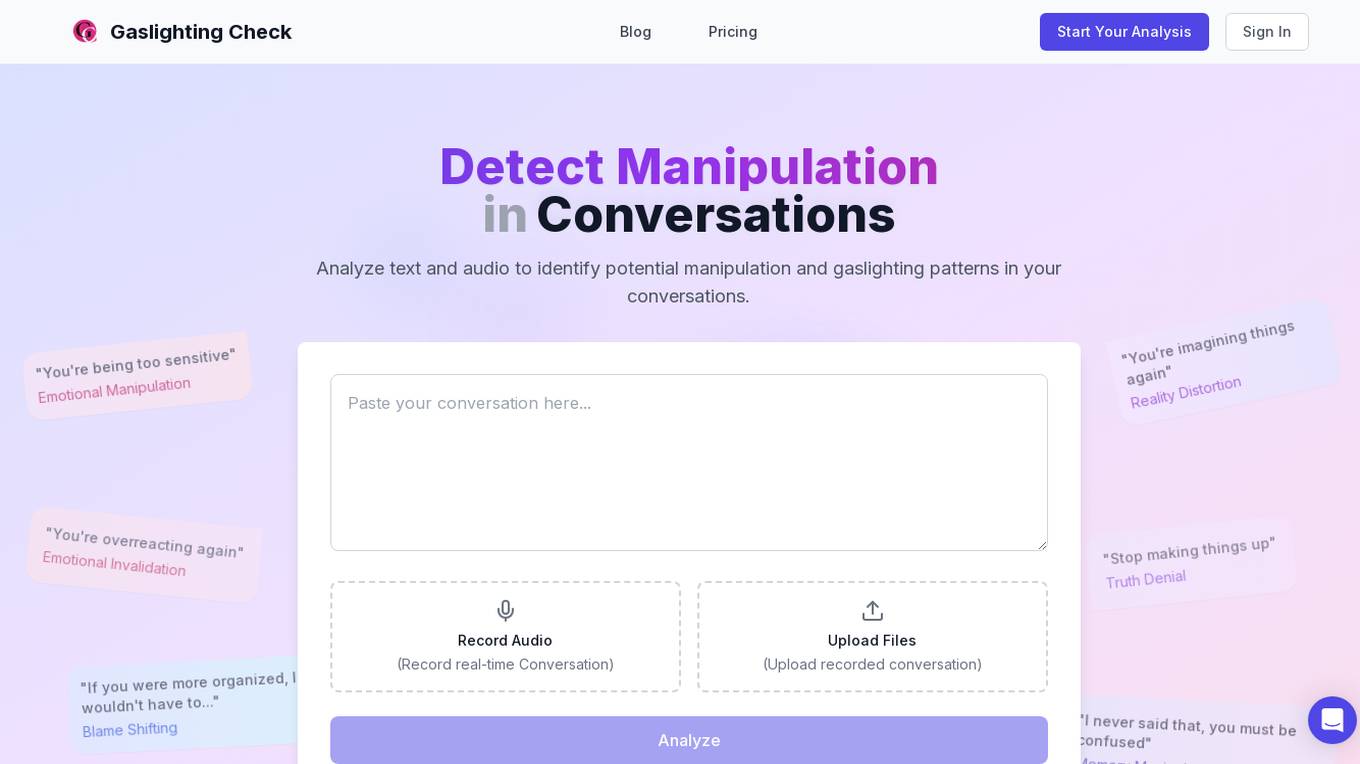
Gaslighting Check
Gaslighting Check is an AI-powered tool designed to help users identify and understand manipulation patterns, particularly gaslighting, in their conversations. The tool offers text and voice analysis capabilities to detect subtle manipulation tactics, providing users with actionable insights and recommendations. Gaslighting Check aims to empower individuals by recognizing and documenting manipulation, ultimately aiding in regaining self-confidence and setting boundaries in various relationships.
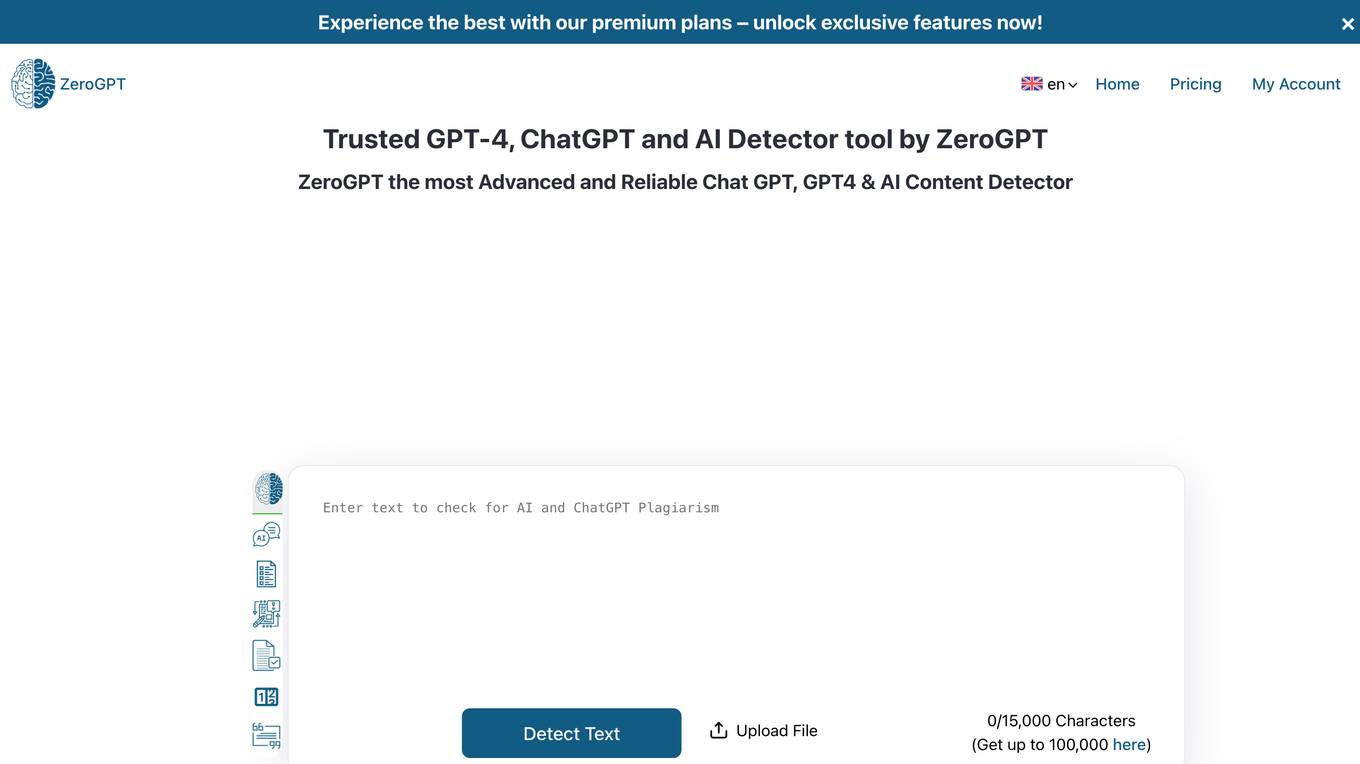
ZeroGPT
ZeroGPT is a comprehensive AI detection tool that helps users identify AI-generated content. It offers a range of features, including sentence highlighting, batch file upload, high accuracy, and support for multiple languages. ZeroGPT's DeepAnalyse™ Technology employs a multi-stage methodology to analyze text and determine its origin. The tool is designed to minimize false positives and negatives, providing users with reliable results. ZeroGPT also offers a user-friendly API for organizations, enabling them to integrate the tool into their systems.
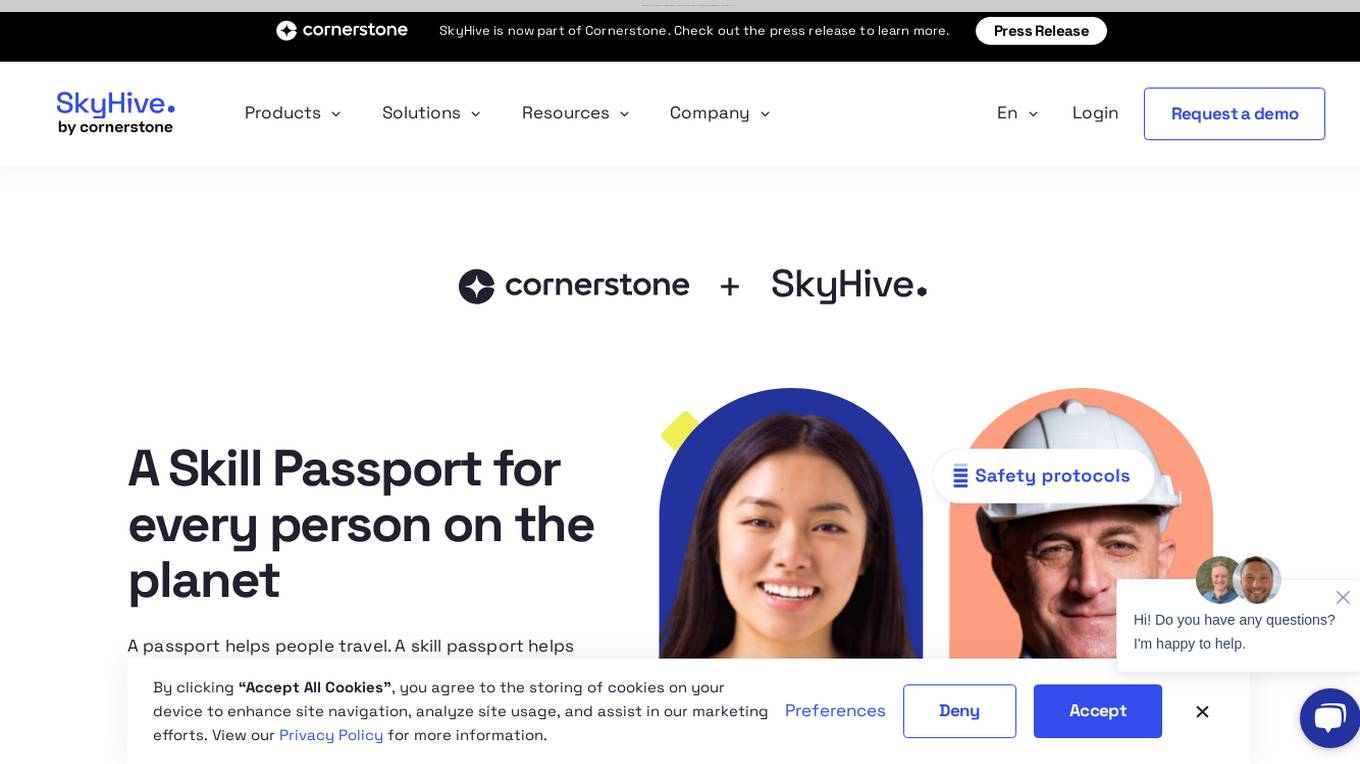
SkyHive
SkyHive is an AI-powered platform that aims to organize the world's workforce data and facilitate reskilling. It offers solutions for businesses, governments, educators, and individuals to leverage skills-based models, automate processes, and drive employee engagement. SkyHive's technology utilizes advanced skills matching algorithms, real-time labor market data, and predictive analytics to help users identify skill gaps, connect to opportunities, and accelerate career advancement.
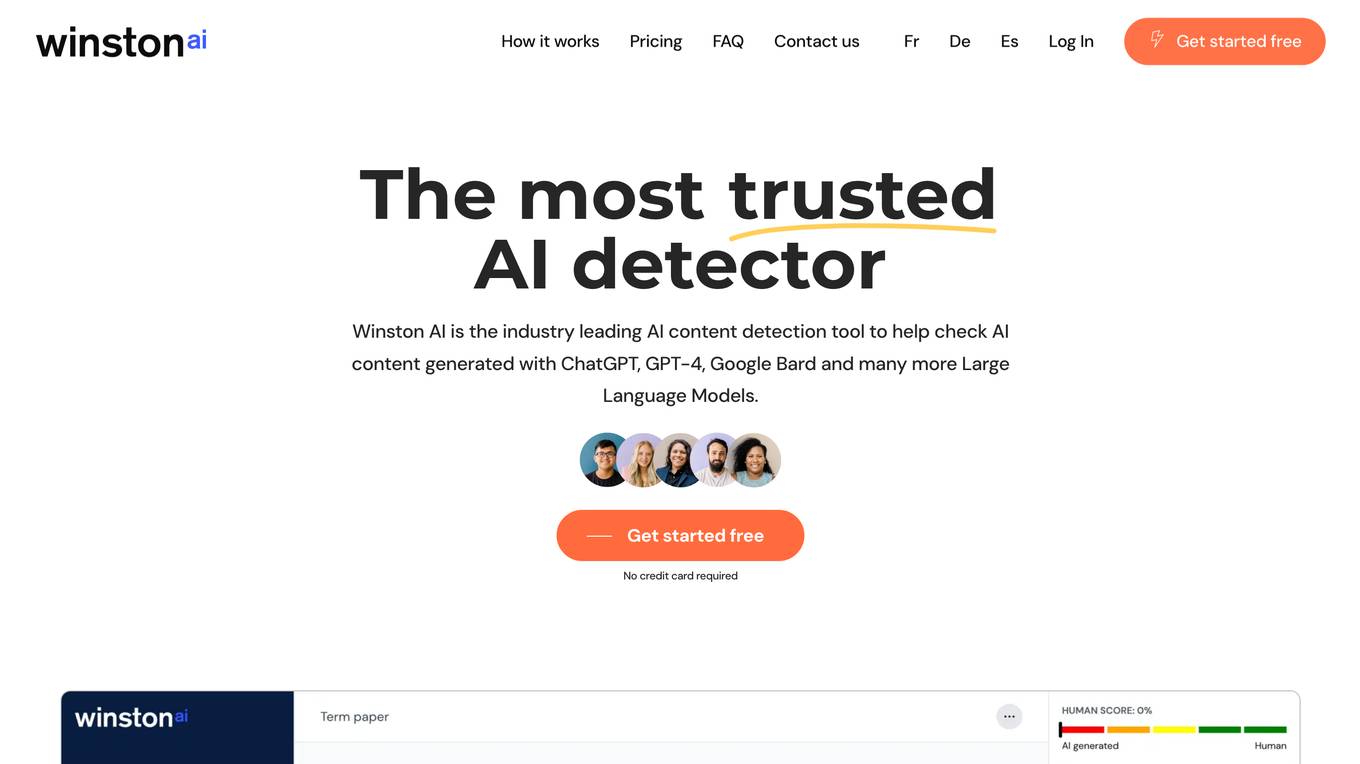
Winston AI
Winston AI is a leading AI content detection tool designed to help users identify AI-generated text from ChatGPT, GPT-4, Google Bard, and other large language models. It offers a range of features, including AI content detection, plagiarism checking, readability scoring, and OCR (Optical Character Recognition) technology for extracting text from scanned documents or pictures. Winston AI is committed to providing accurate and reliable AI detection, with a 99.98% accuracy rate and continuous updates to keep up with the latest advancements in AI writing tools.
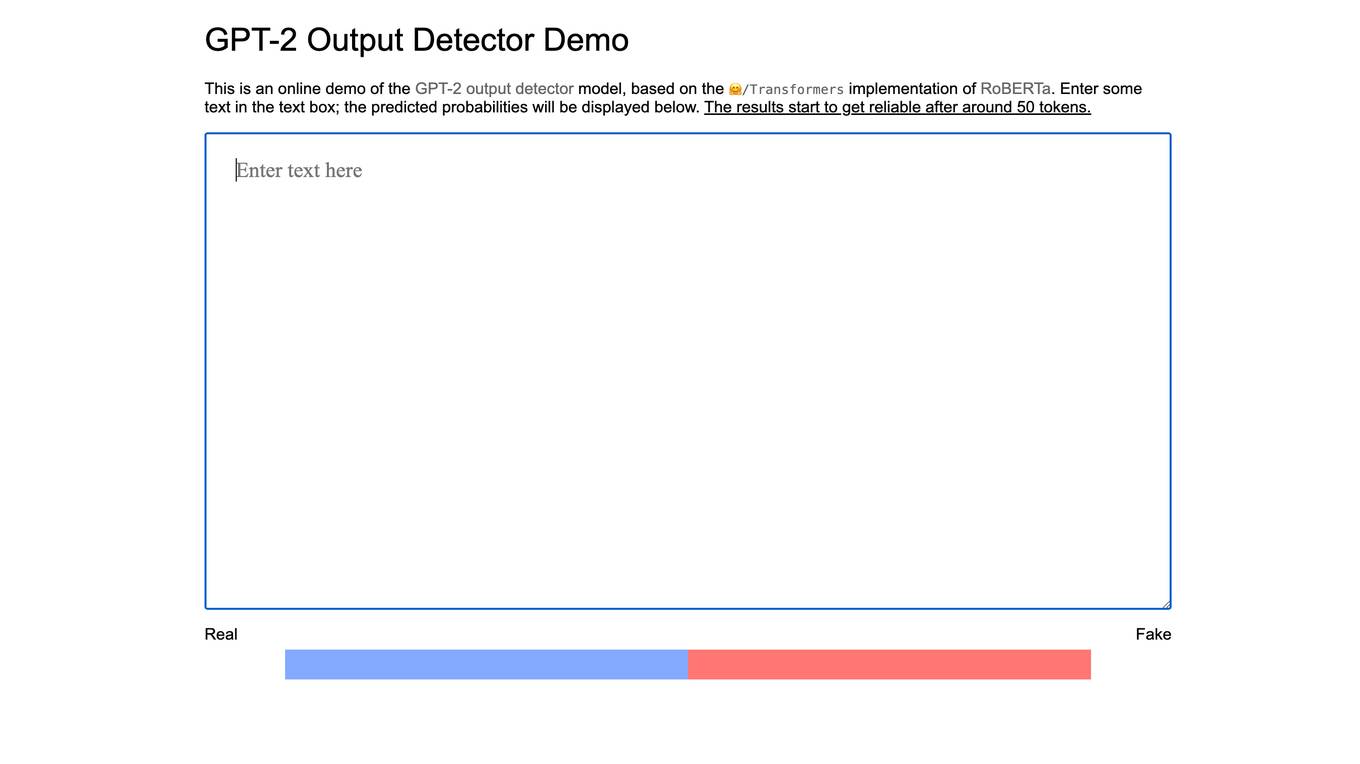
GPT-2 Output Detector
The GPT-2 Output Detector is an online tool that helps users identify whether a given text was generated by the GPT-2 language model. The tool is based on the RoBERTa implementation of Transformers, a popular natural language processing library. Users can enter text into the text box, and the tool will predict the probability that the text was generated by GPT-2. The results start to get reliable after around 50 tokens.
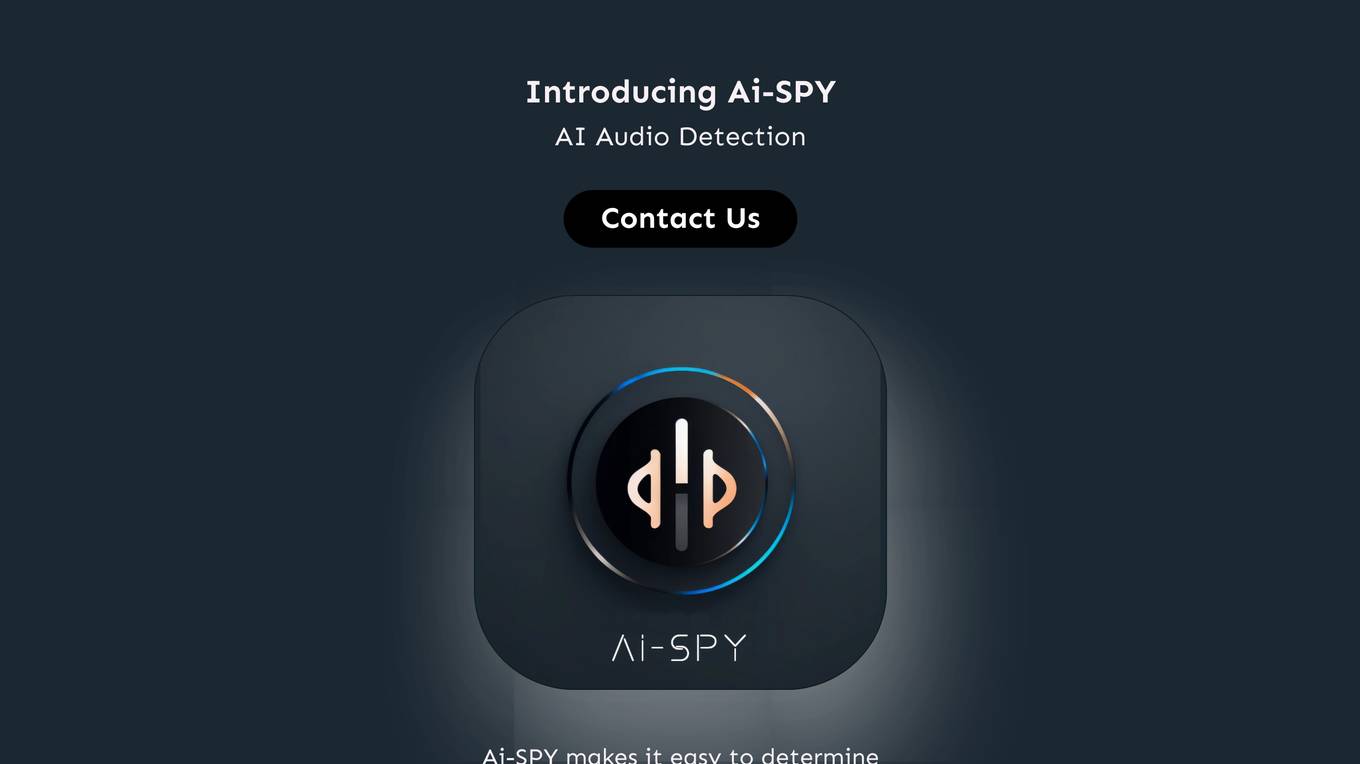
Ai-SPY
Ai-SPY is an advanced AI audio detection tool that helps users identify whether speech is human or AI-generated. It offers detailed reports, easy integration with API access, and expert human insights for accurate analysis. Ai-SPY leverages a proprietary neural network to provide unparalleled audio authenticity insights, making it a valuable tool for content verification and manipulation detection.
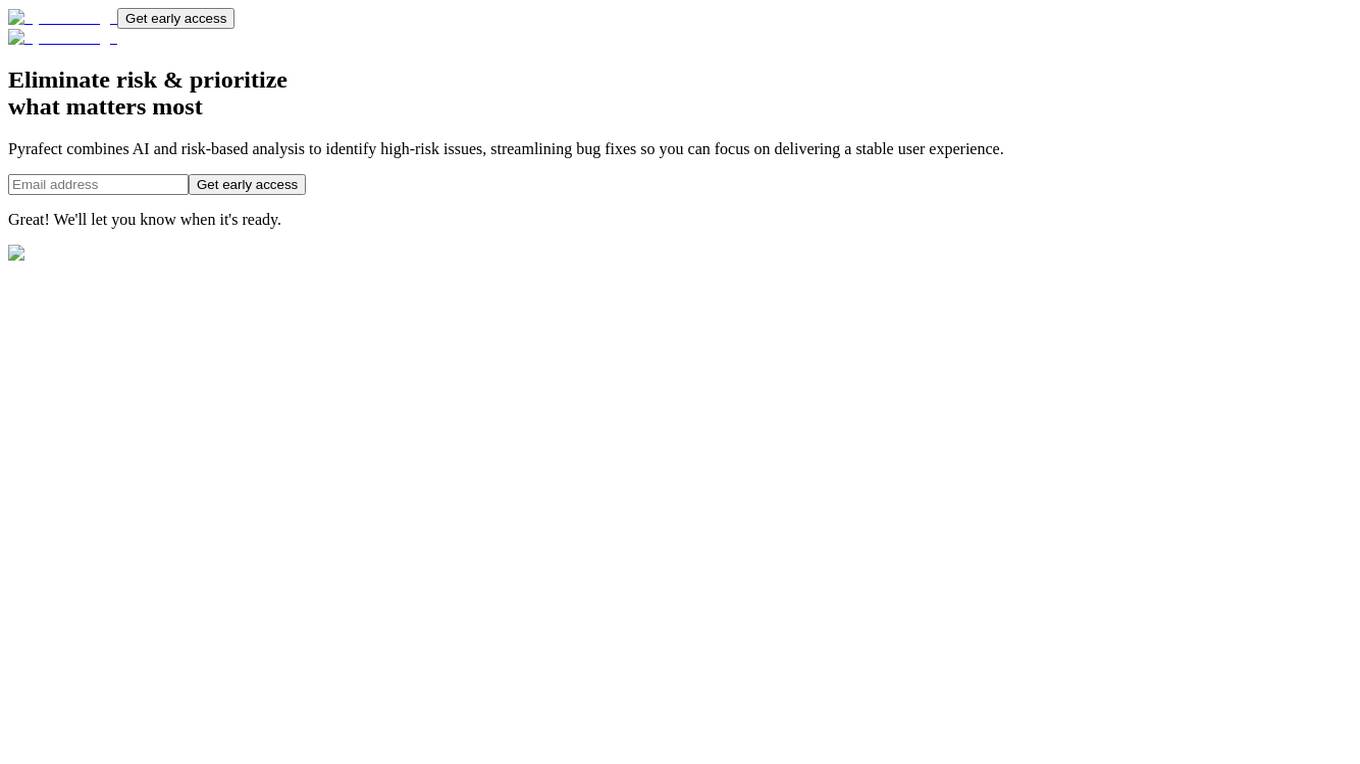
Pyrafect
Pyrafect is an AI tool that combines AI and risk-based analysis to help users identify high-risk issues and streamline bug fixes. By leveraging AI technology, Pyrafect aims to assist users in prioritizing tasks and delivering a stable user experience. The tool offers early access to its features, allowing users to proactively manage risks and focus on what matters most.
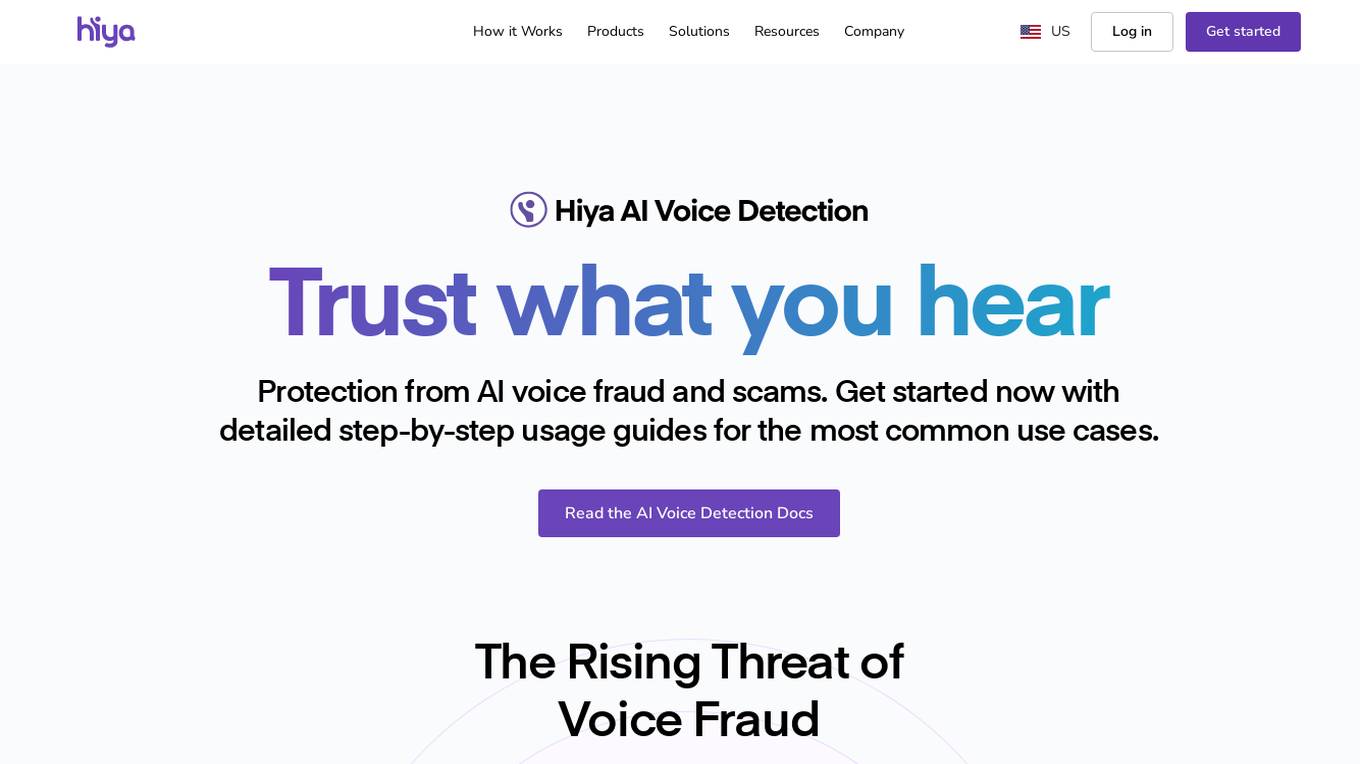
Hiya
Hiya is an AI-powered caller ID, call blocker, and protection application that enhances voice communication experiences. It helps users identify incoming calls, block spam and fraud, and protect against AI voice fraud and scams. Hiya offers solutions for businesses, carriers, and consumers, with features like branded caller ID, spam detection, call filtering, and more. With a global reach and a user base of over 450 million, Hiya aims to bring trust, identity, and intelligence back to phone calls.
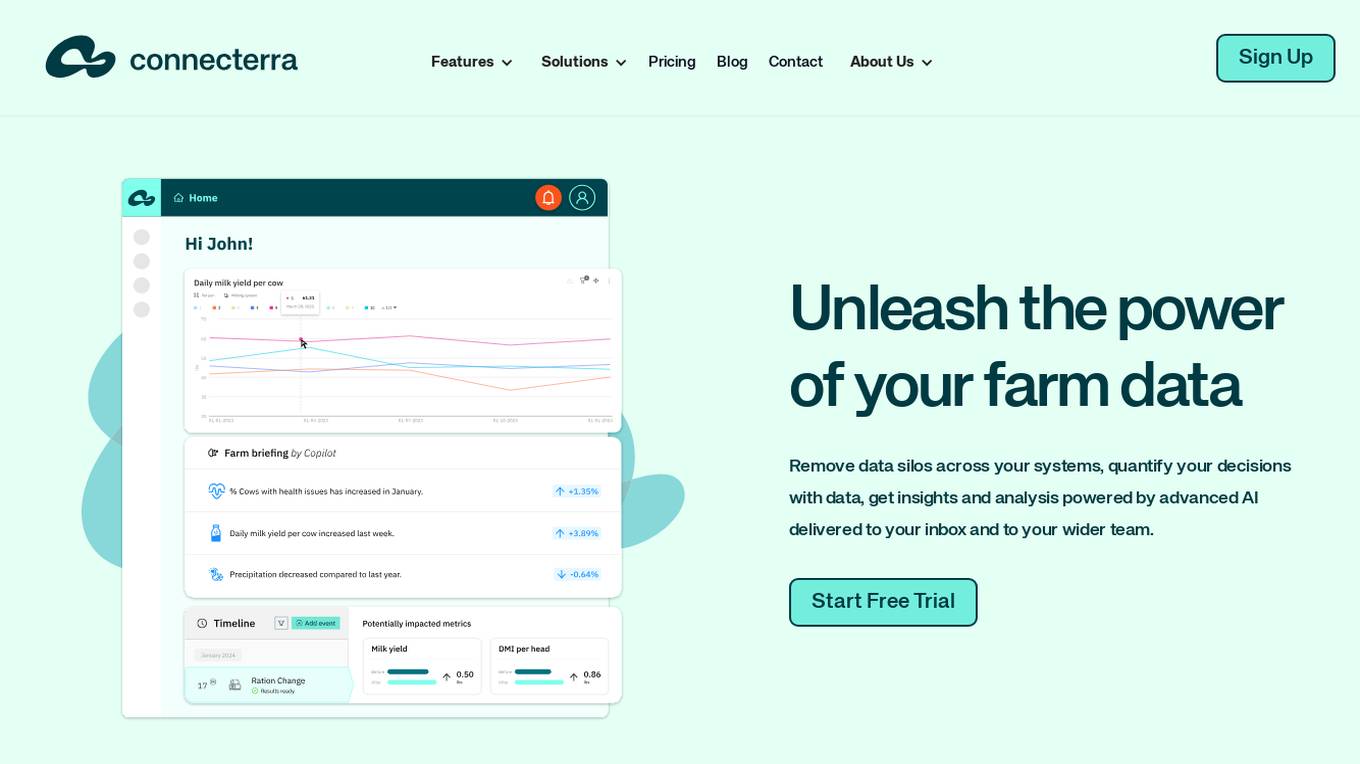
Connecterra
Connecterra is an intelligent data platform designed specifically for the dairy industry. It provides farmers, advisors, and enterprises with a comprehensive suite of tools to collect, analyze, and visualize their farm data. With advanced AI capabilities, Connecterra helps users identify trends, optimize decision-making, and improve overall farm performance.
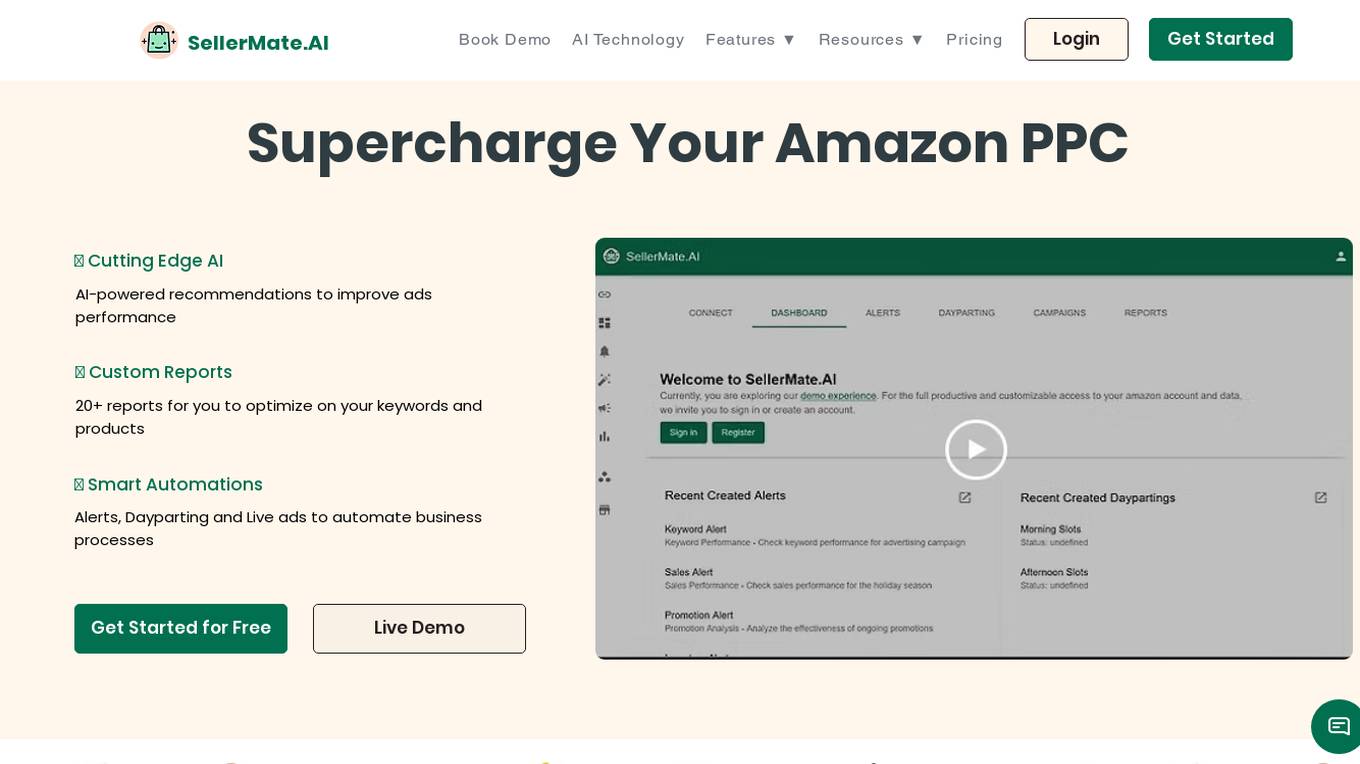
SellerMate.AI
SellerMate.AI is an AI-powered tool designed to optimize Amazon PPC ads performance. It offers features such as AI-powered recommendations, custom reports, smart automations, and business process streamlining. The tool helps users identify growth opportunities, achieve target ACOS, and streamline business processes through data-driven insights and automations. SellerMate.AI is trusted by over 1000 brands across 20+ different country's marketplaces.
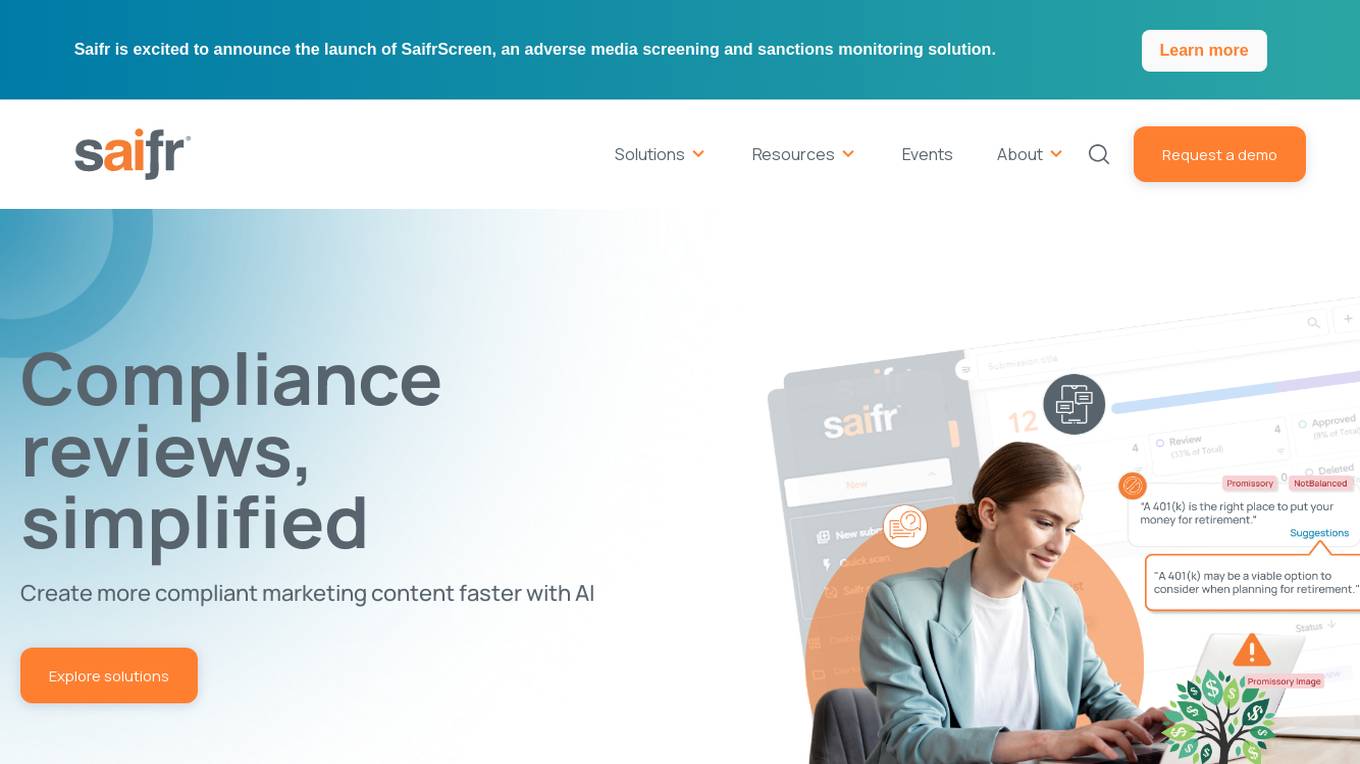
Saifr
Saifr is an AI-powered marketing compliance solution that simplifies compliance reviews and content creation processes. With accurate data and decades of insights, Saifr's AI technology helps users identify compliance risks, propose alternative phrasing, and streamline compliance workflows. The platform aims to enhance operational efficiency, safeguard against risks, and make compliance reviews more efficient for users to focus on creative work.
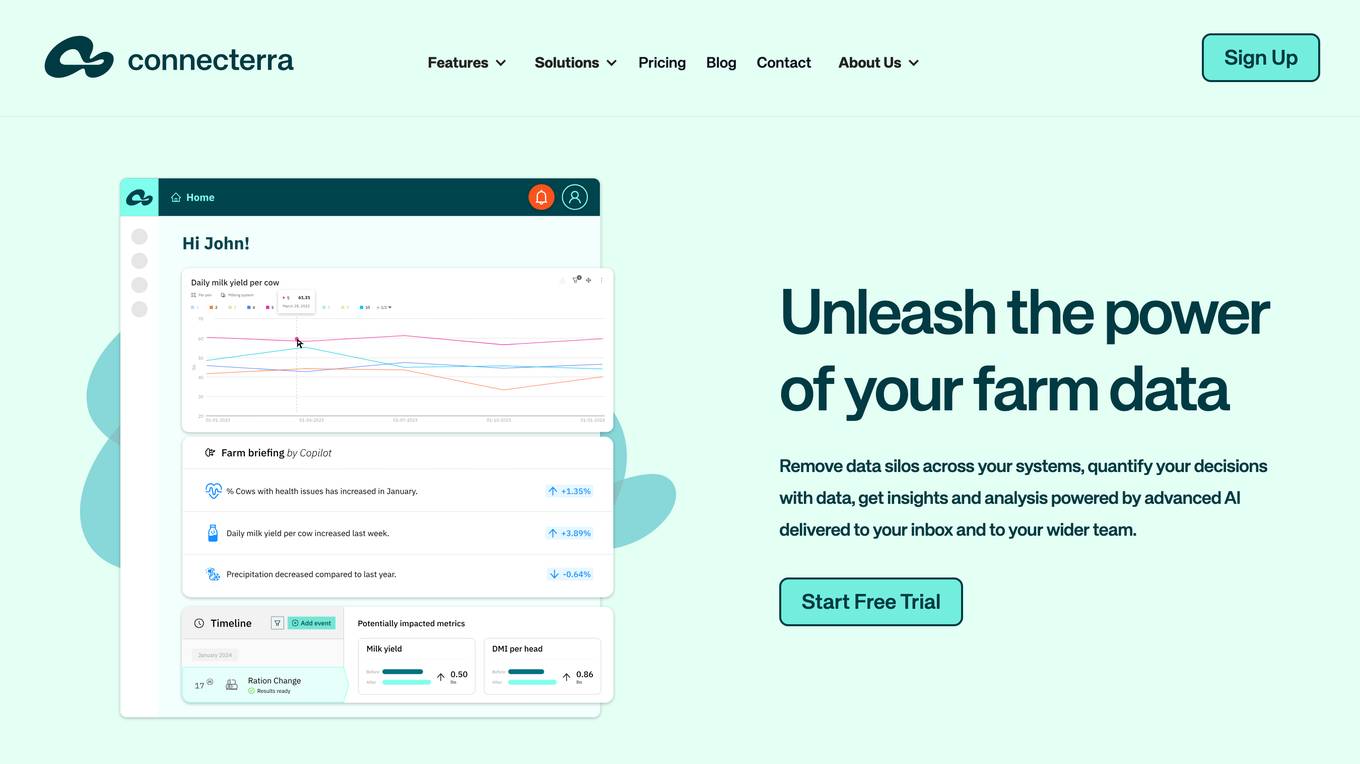
Connecterra
Connecterra is an intelligent data platform designed specifically for the dairy industry. It provides farmers, advisors, and enterprises with a comprehensive suite of tools to collect, analyze, and visualize their farm data. With advanced AI capabilities, Connecterra helps users identify trends, make informed decisions, and improve their overall operational efficiency.
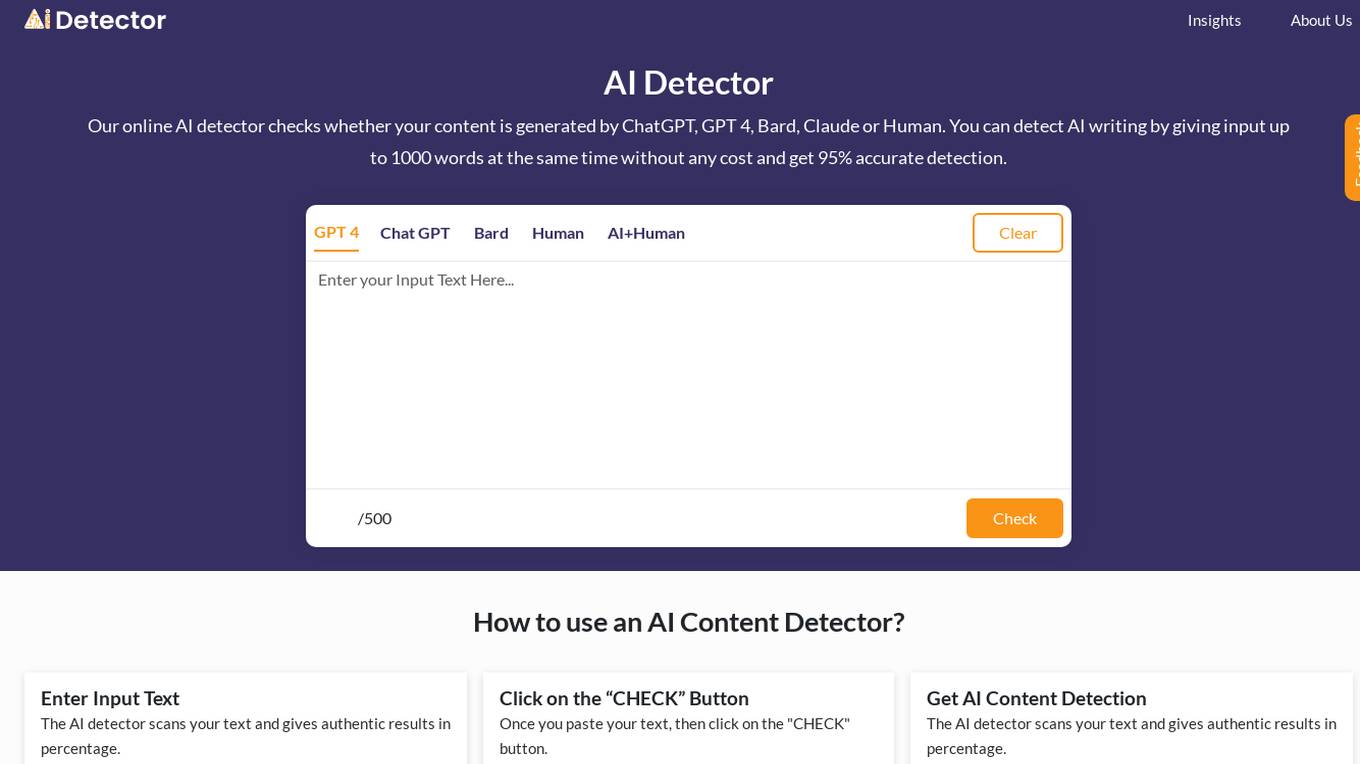
AI Detector
AI Detector is an online tool that uses advanced algorithms and machine learning to check if your written text is generated by AI or a human writer. It analyzes the writing style, sentence structure, and other linguistic patterns to determine the likelihood of AI authorship. The tool provides a percentage score indicating the probability of AI-generated content, helping users identify potential plagiarism or AI-assisted writing.
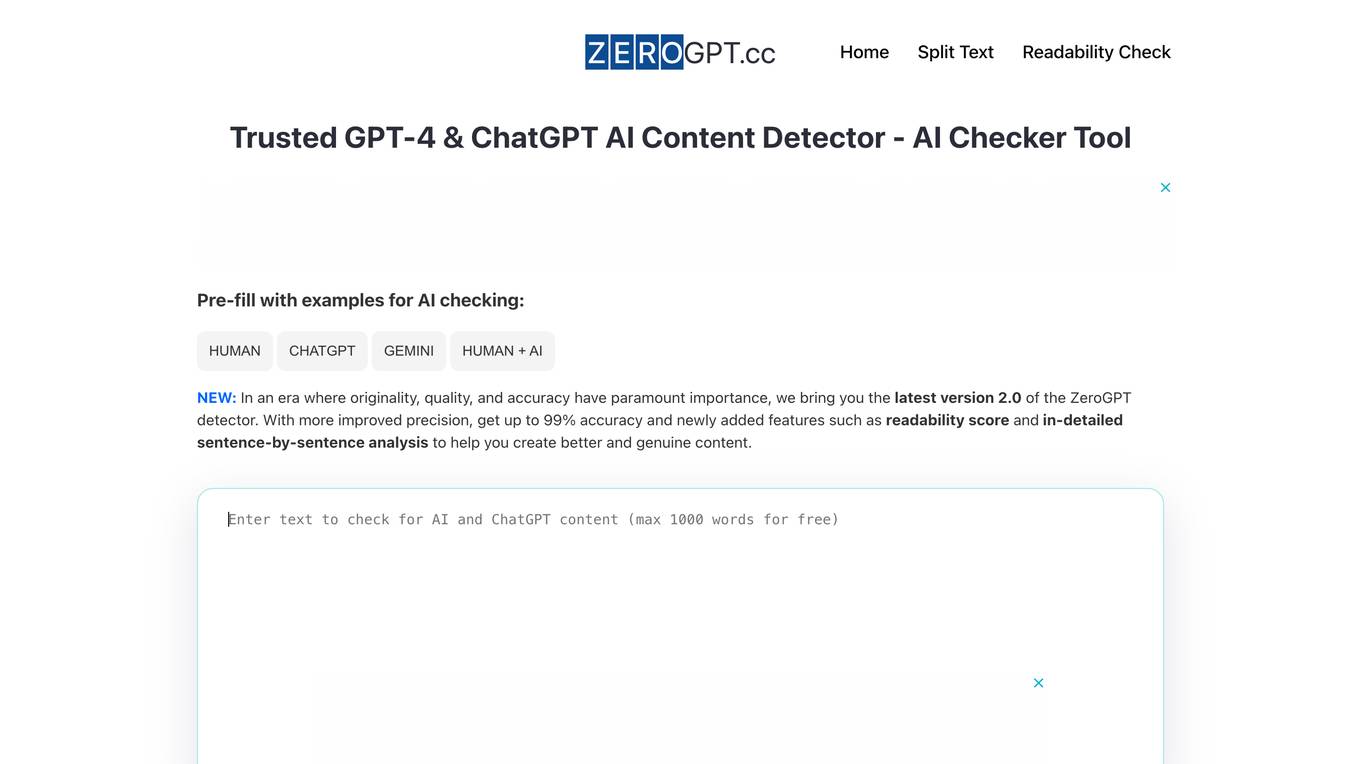
ZeroGPT
ZeroGPT is a free AI content detector that helps users identify AI-generated text. It uses machine learning algorithms and natural language processing techniques to analyze text and determine whether it was written by a human or an AI. ZeroGPT is accurate, fast, and easy to use. It can be used to detect AI-generated text in a variety of languages, including English, Spanish, French, German, and Chinese. ZeroGPT is a valuable tool for anyone who wants to ensure that their content is original and authentic.
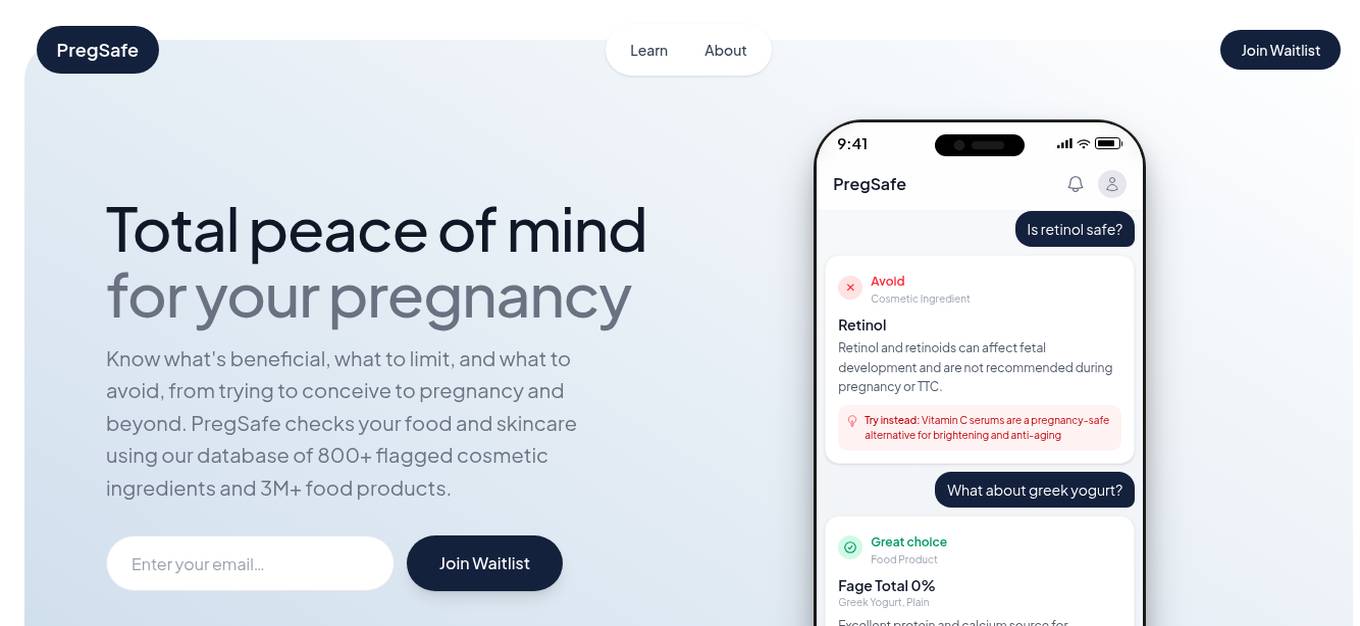
PregSafe
PregSafe is a pregnancy safety companion that empowers users to make informed decisions about the safety of food and skincare products during pregnancy and fertility. It offers a database of 800+ flagged cosmetic ingredients and 3M+ food products to help users identify what's beneficial, what to limit, and what to avoid. PregSafe is the world's first AI assistant for pregnancy and fertility safety, providing science-backed insights and practical guidance to reduce exposure to harmful ingredients and support long-term health for both mother and baby.
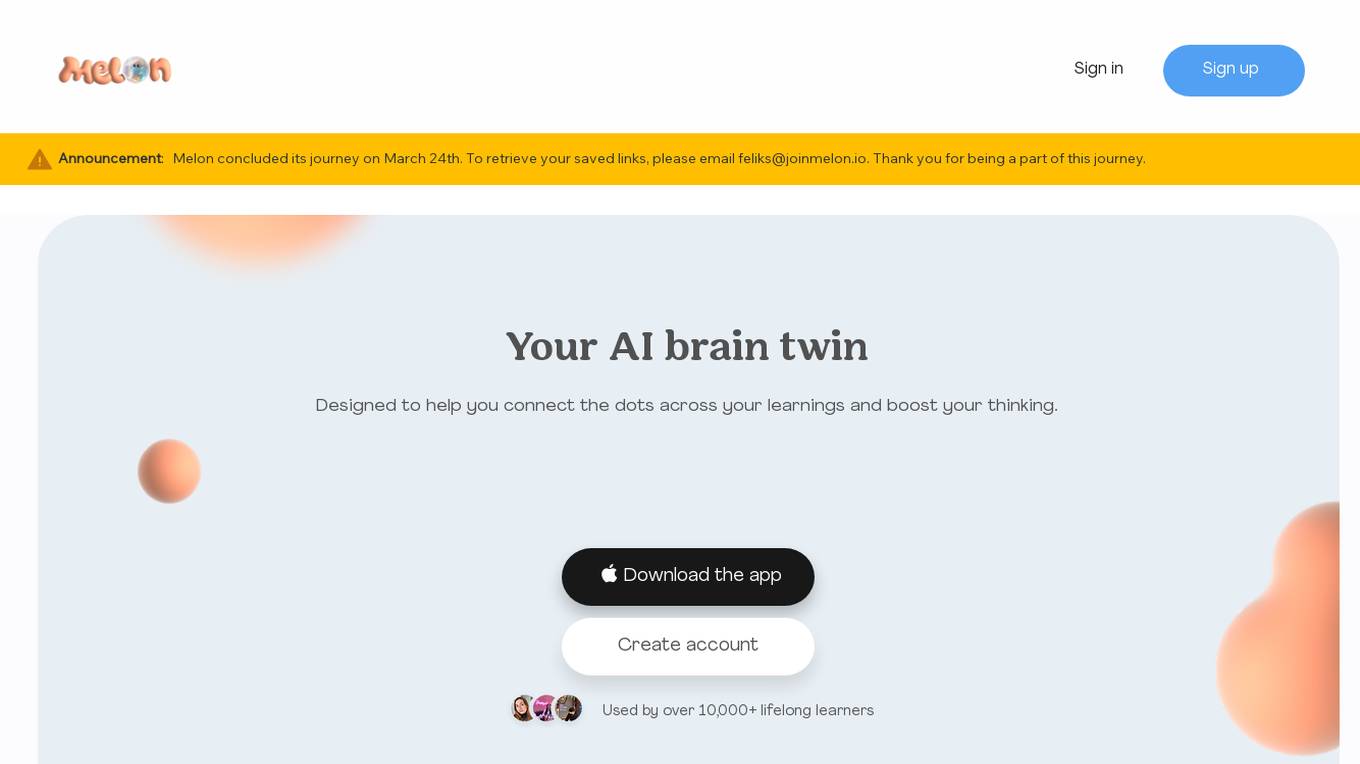
Melon
Melon is an AI-powered tool that helps users learn and think more effectively. It allows users to save, organize, and visualize their learning from various sources, including articles, LinkedIn posts, tweets, and YouTube videos. Melon's AI brain can retrieve, summarize, and connect insights from saved content, helping users identify patterns and correlations that might not be immediately apparent to them. Users can also create collections to group saved content based on topic, focus, or area of interest.
0 - Open Source AI Tools
20 - OpenAI Gpts
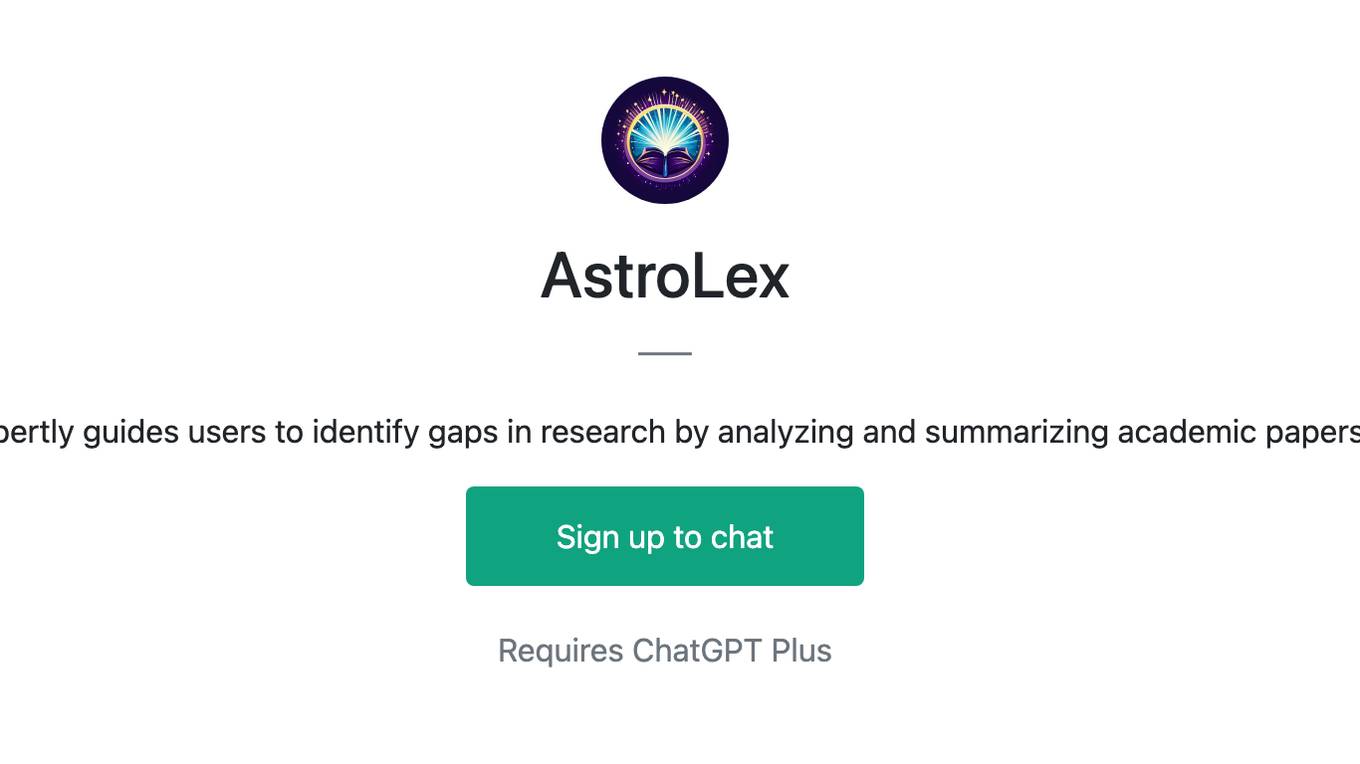
AstroLex
Expertly guides users to identify gaps in research by analyzing and summarizing academic papers.
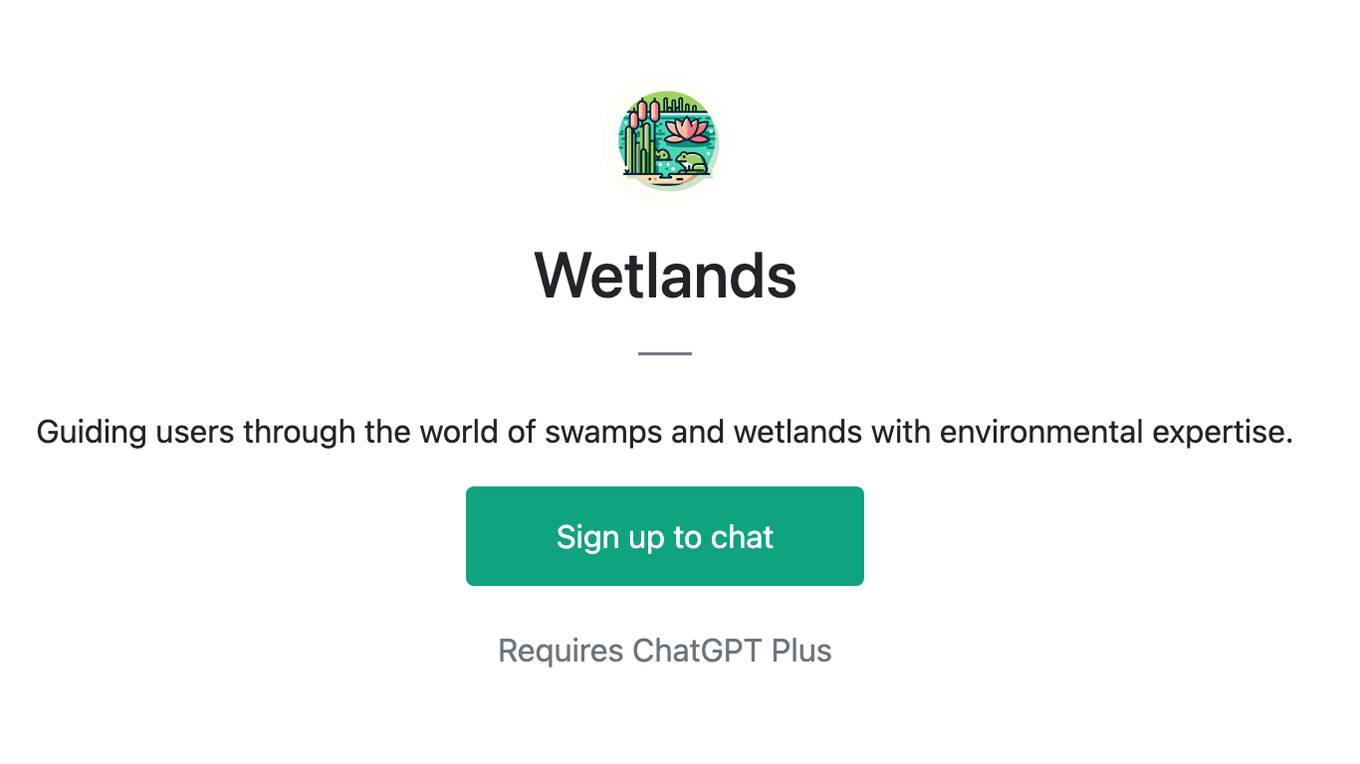
Wetlands
Guiding users through the world of swamps and wetlands with environmental expertise.
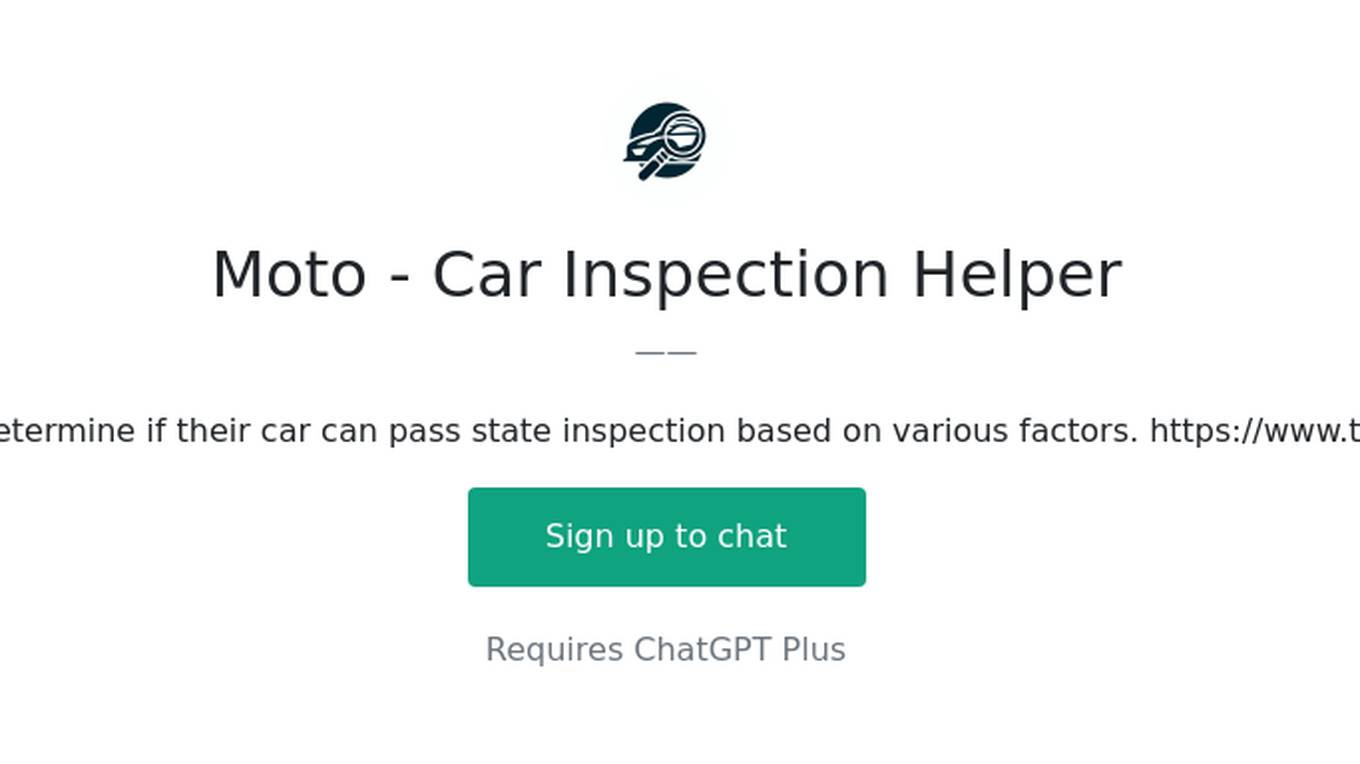
Moto - Car Inspection Helper
Helps users determine if their car can pass state inspection based on various factors. https://www.trymoto.app/
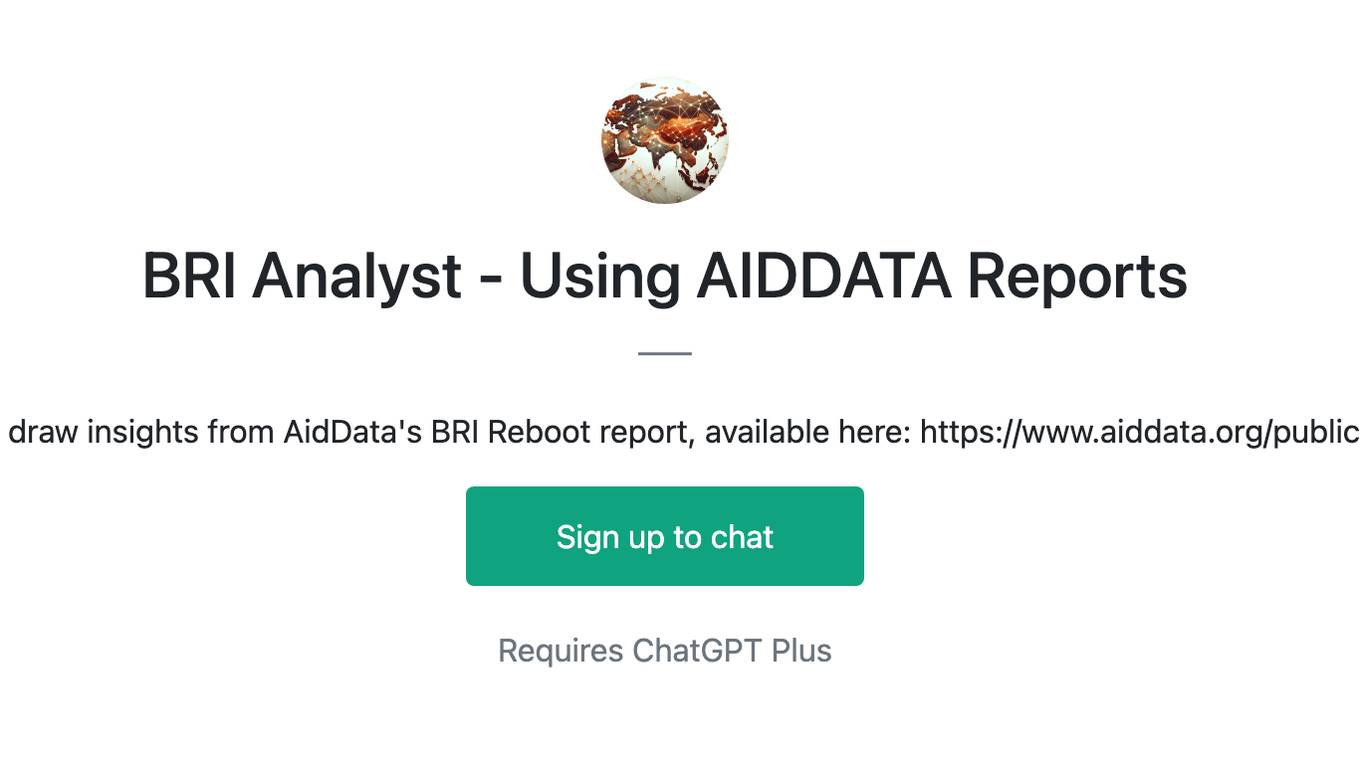
BRI Analyst - Using AIDDATA Reports
I help users to understand and draw insights from AidData's BRI Reboot report, available here: https://www.aiddata.org/publications/belt-and-road-reboot
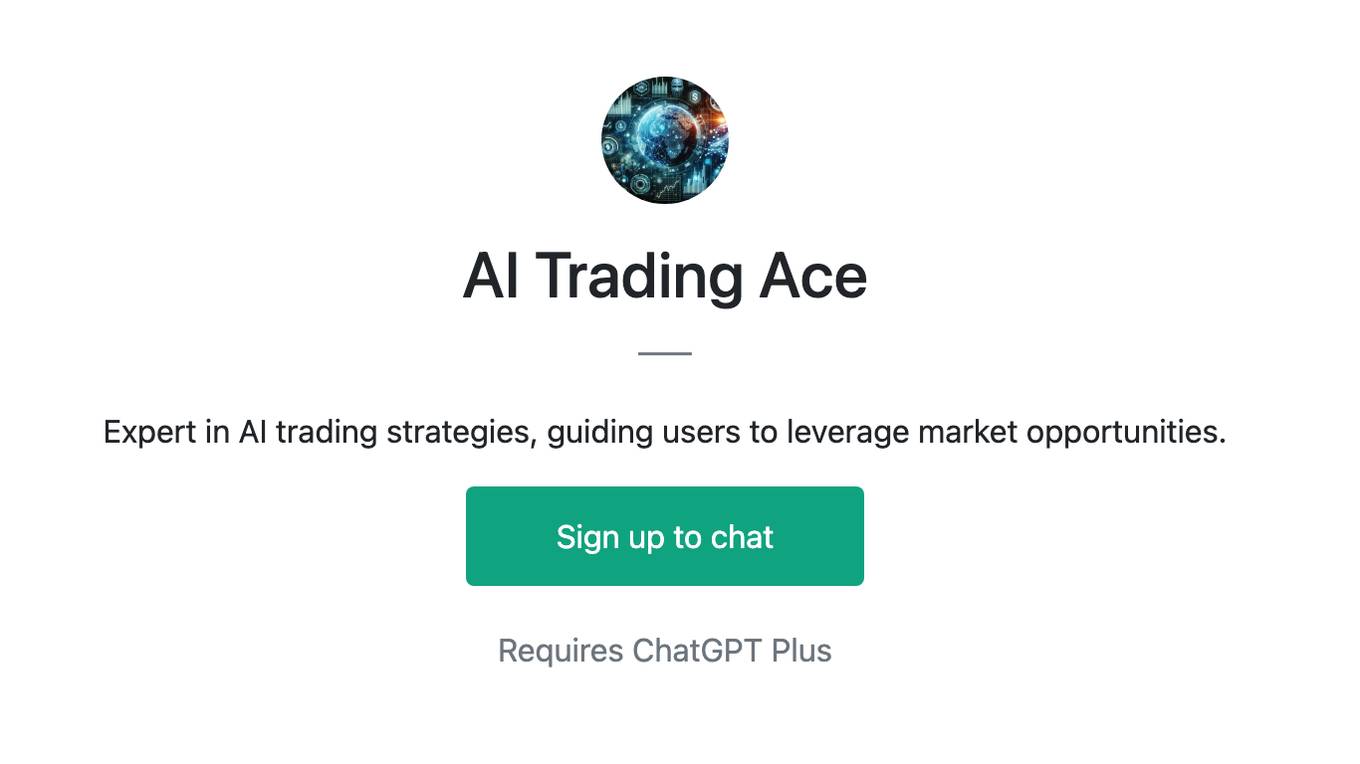
AI Trading Ace
Expert in AI trading strategies, guiding users to leverage market opportunities.
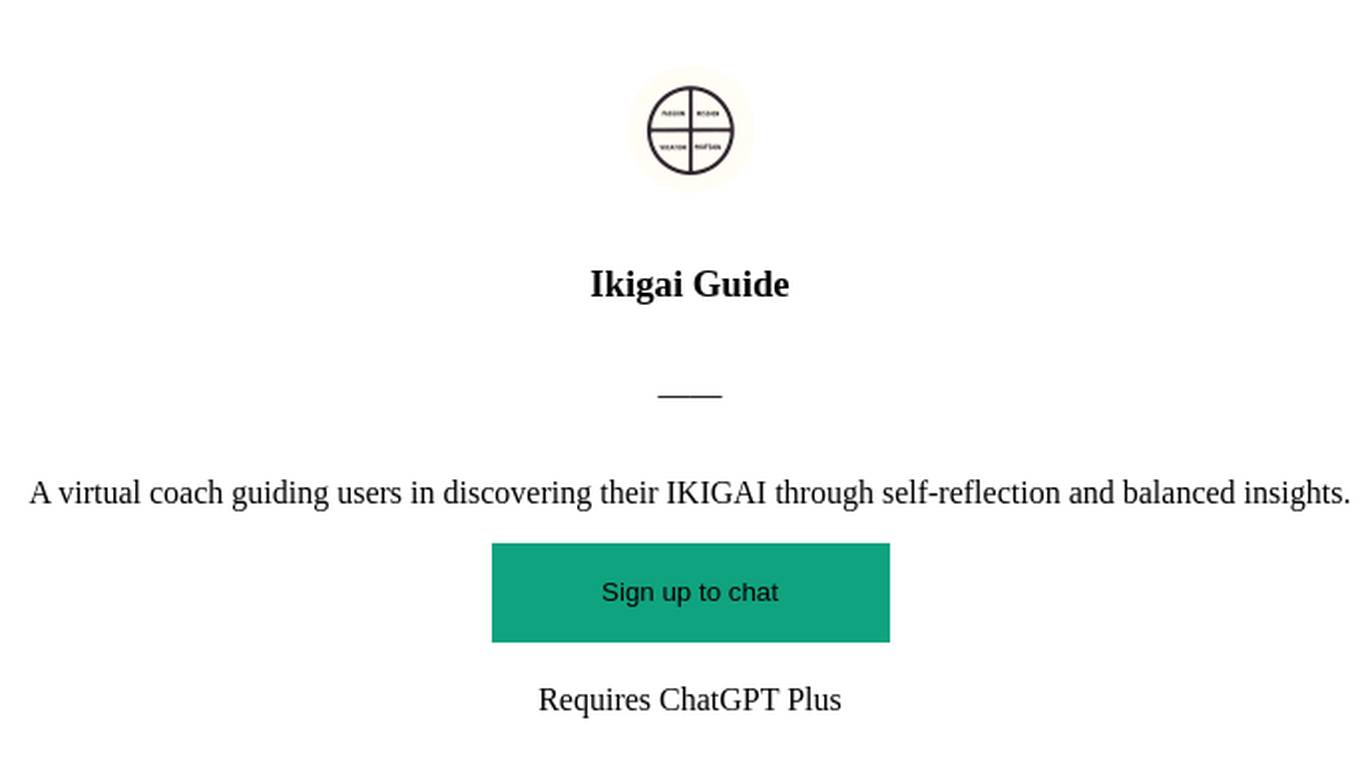
Ikigai Guide
A virtual coach guiding users in discovering their IKIGAI through self-reflection and balanced insights.
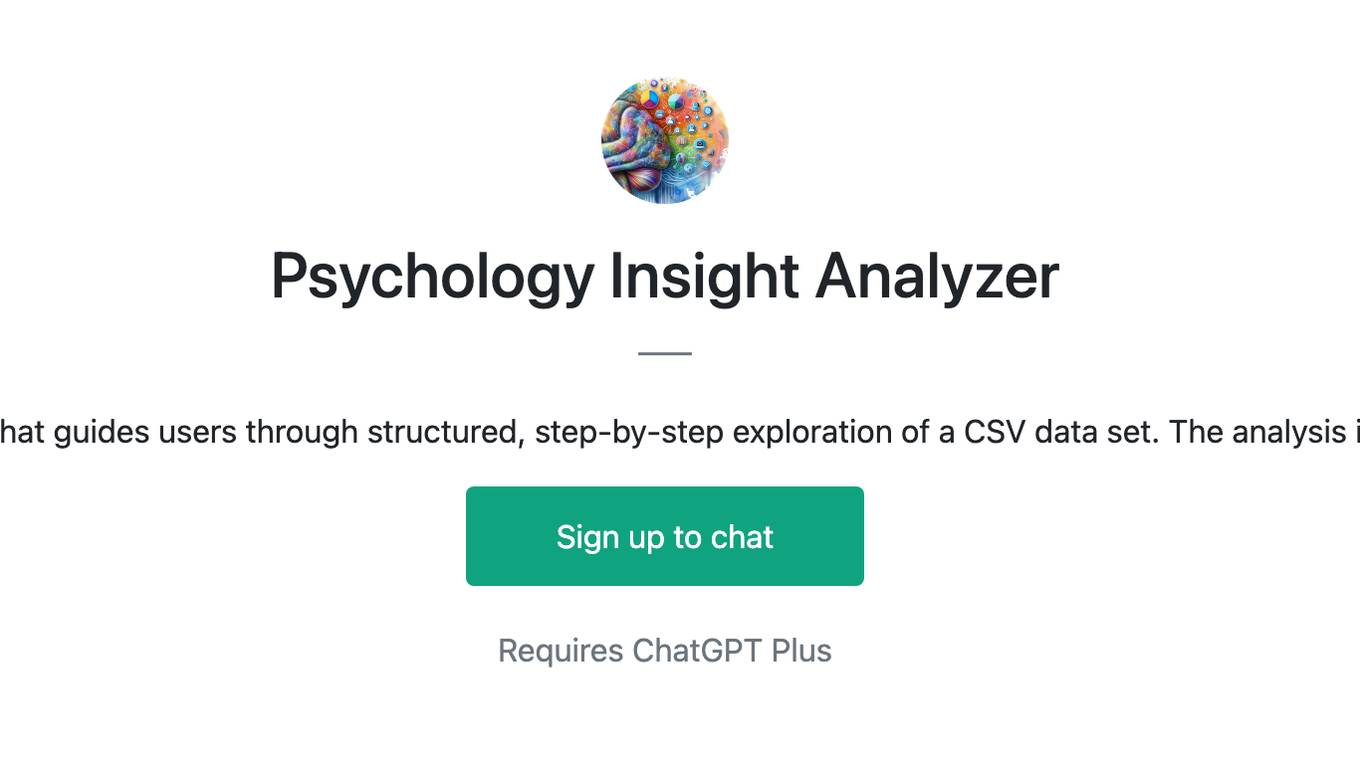
Psychology Insight Analyzer
Psychology data analysis expert that guides users through structured, step-by-step exploration of a CSV data set. The analysis is based on research questions.
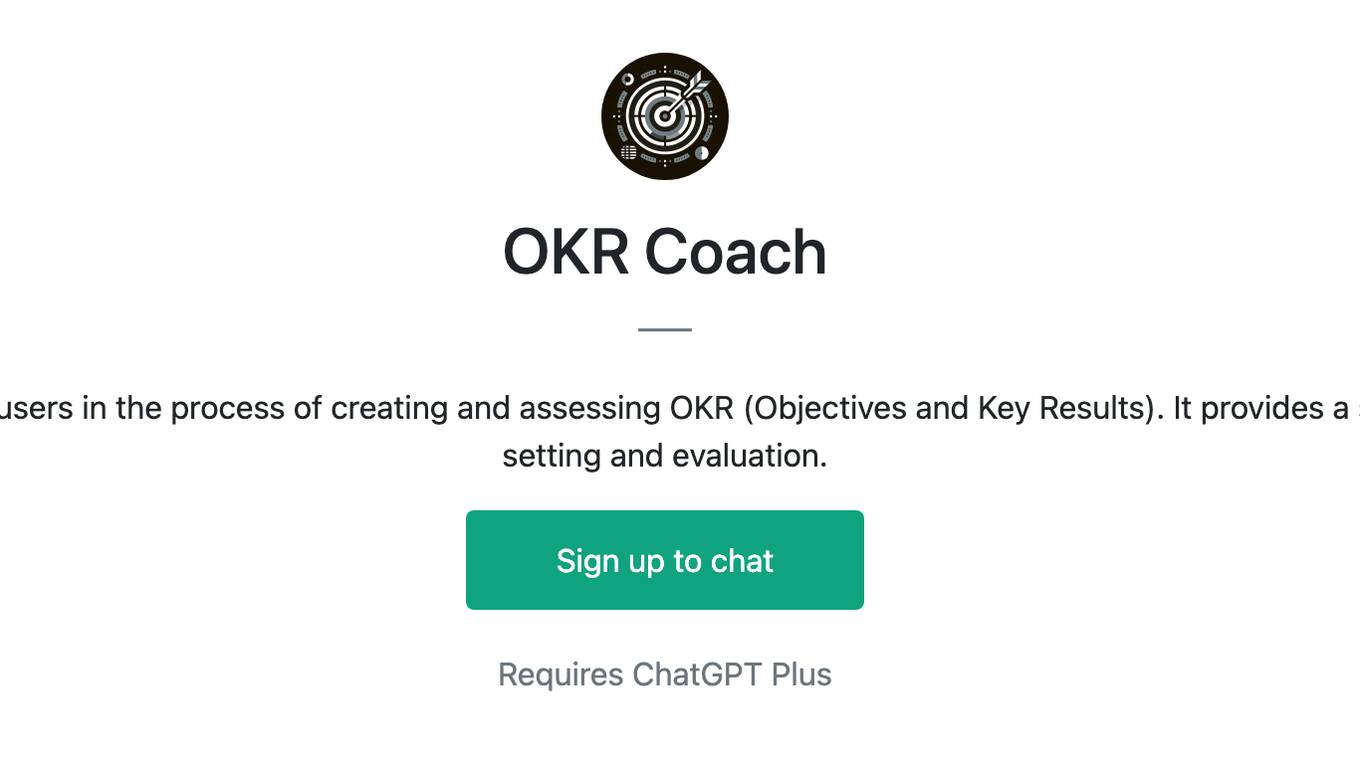
OKR Coach
AI OKR Coach is a tool designed to assist users in the process of creating and assessing OKR (Objectives and Key Results). It provides a structured and flexible approach to OKR setting and evaluation.
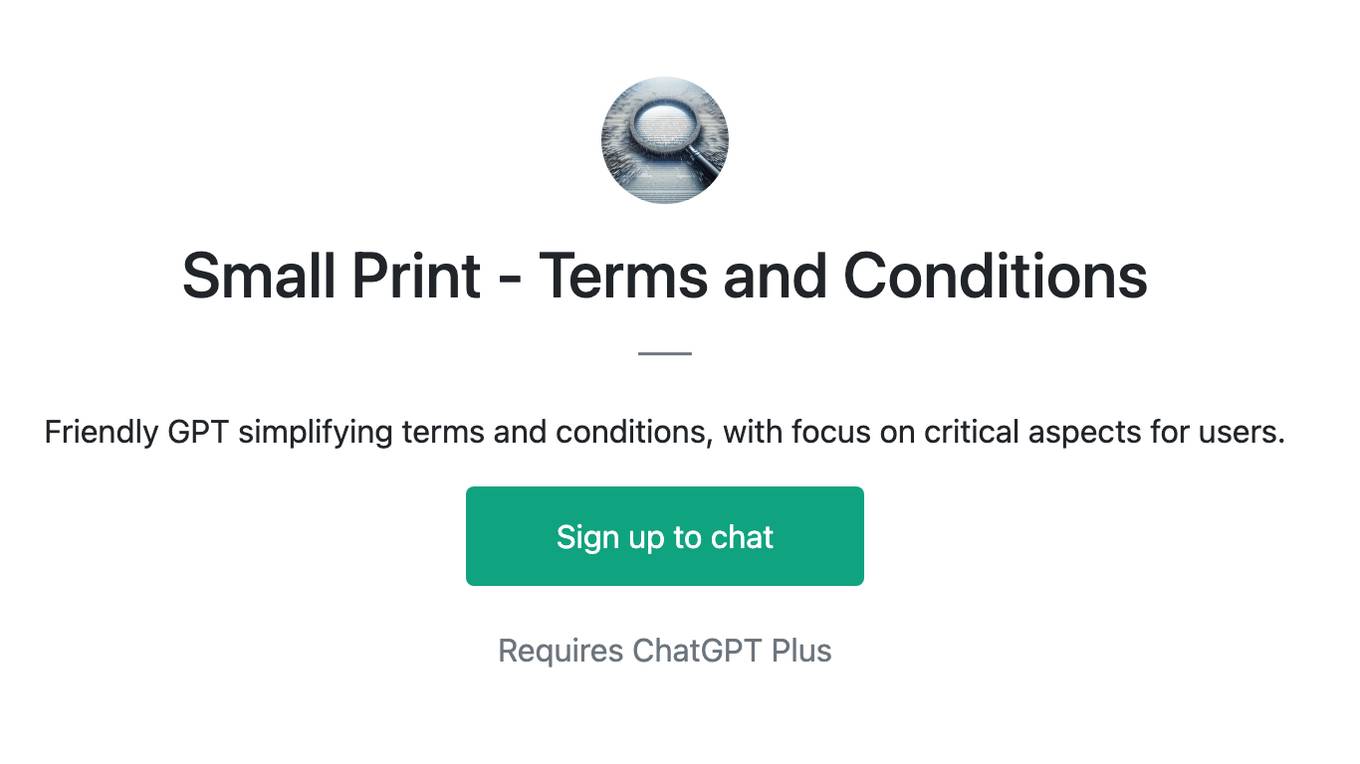
Small Print - Terms and Conditions
Friendly GPT simplifying terms and conditions, with focus on critical aspects for users.
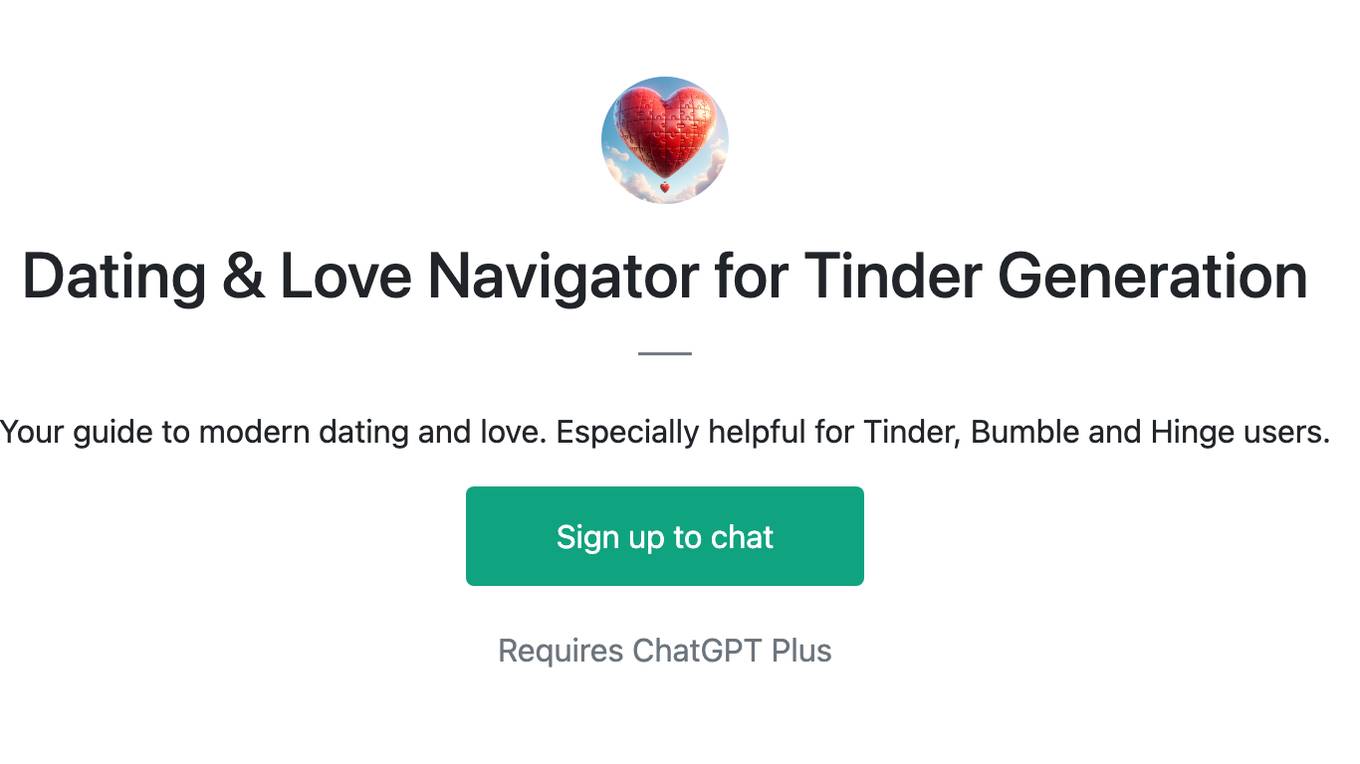
Dating & Love Navigator for Tinder Generation
Your guide to modern dating and love. Especially helpful for Tinder, Bumble and Hinge users.
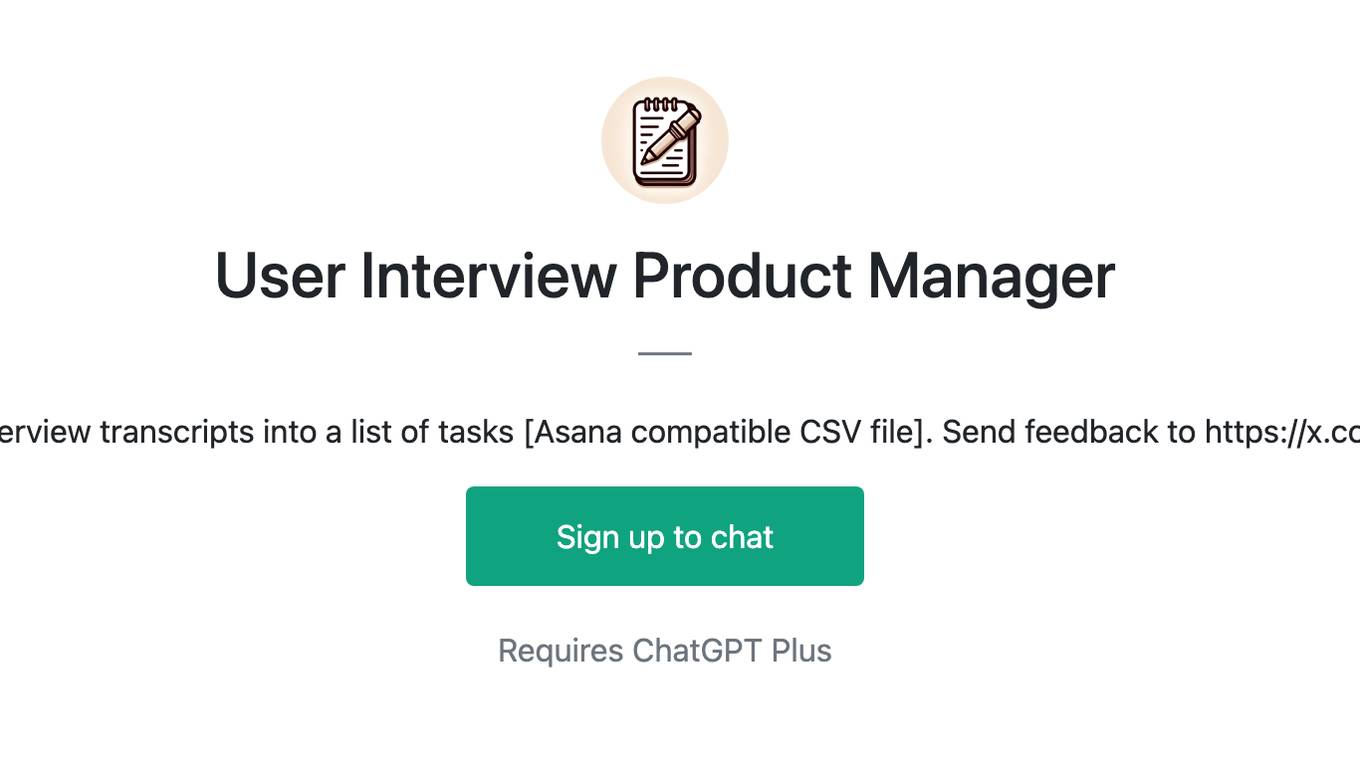
User Interview Product Manager
Transforms user interview transcripts into a list of tasks [Asana compatible CSV file]. Send feedback to https://x.com/kireet_agrawal
